
Rebel News writing, Redbird Review interview launch, and drafting my next book, Too Big to Surveil: Tech, World Peace, and Chocolate—now in artist newsletter form!
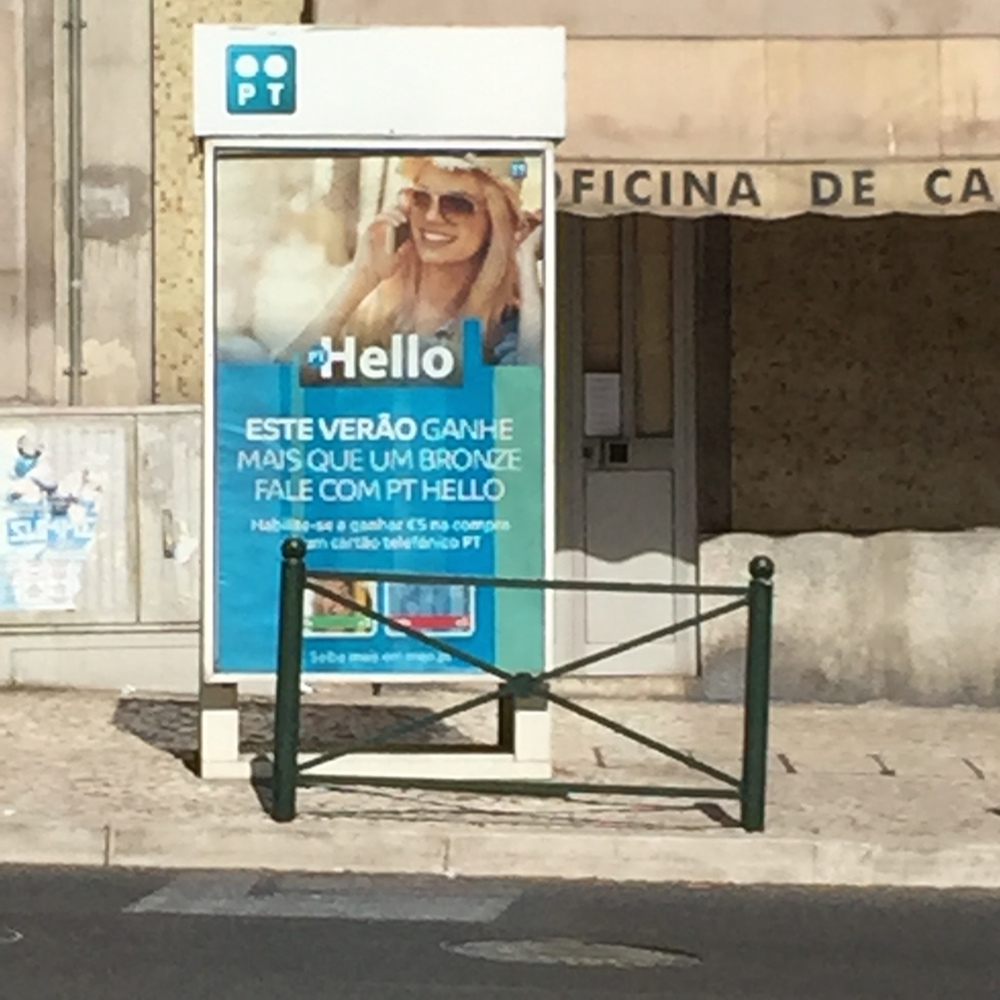
Research Methods, Ethics, Revolution

Rebel News writing, Redbird Review interview launch, and drafting my next book, Too Big to Surveil: Tech, World Peace, and Chocolate—now in artist newsletter form!

Anonymity, home, trust, Net freedom, the forgotten Constitutional history of privacy, and more in my Redbird Review interview up today.
An essay on violence and the political nature of defining the political—”Defining Terrorism as Political Violence is a Political Act“—published in the new Rebel News.
An essay on U.S. domestic psyops and surveillance—”Entrap the Entrappers“—published in the new Rebel News today.
“Fidelity to the nature to which we belong, as parts however weak, demands that we cherish our desires and ideals till we have converted them into intelligence, revised them in terms of the ways and means which nature makes possible. When we have used our thought to its utmost and have thrown into the moving unbalanced balance of things our puny strength, we know that though the universe slay us still we may trust, for our lot is one with whatever is good in existence. We know that such thought and effort is one condition of the coming into existence of the better. As far as we are concerned it is the only condition, for it alone is in our power. To ask more than this is childish.”—John Dewey (h/t Melvin Rogers)
Now in artist newsletter form!
A tribute to Sigmund Freud (and Edna St. Vincent Millay) published at The Science Creative Quarterly this week by friend of the blog Kit Wilder.
Part of my amazing time at Chaos Communication Camp 2015 this past week was giving my first Lightning Talk. It was actually my first conference-type talk. So naturally, I did it wearing a ballerina-princess outfit with butterfly wings. Here’s the video:
And here’s the working paper drafty-draft.
Please get in touch in the comments, on social media, or via email if you want to talk about these ideas! It would be great to get your ideas on how to better make and spread Wtf Butterfly Kits, get help making a website telling makers how to make them and giving patrons a way to fund them, and brainstorm about how to make this a self-monetizing project to help make it sustainable. I have a few ideas about all those things—like how I can just make the apocryphal album while writing a constructive critique of the surveillance state, and then distribute Wtf Butterfly Kits globally while touring. But perhaps for now I’ll just write a bit about the basic idea from the talk.
Today we struggle with one central paradox in politics, and that is the paradox of discretionary power in the age of big government. In the realm of the security state, that means mass surveillance, mass incarceration, and global Davos political culture. The paradox is that on one hand, discretion can be dangerous in the context of centralized power—but at the same time, trust in the discretionary power of our fellow hacktivists underpins the workings decentralized spaces and action that can help empower otherwise disempowered people.
I propose two interventions to resolve this paradox in the realm of information security. The first intervention is a rebranding of the subset of those decentralized spaces and action structures formerly known as the dark-Web—now the EDTR (expressing, dissenting, teaching, resisting) web—to make it more sustainable, safe, and simple to talk about. The second intervention is a reproducible art and info kit—Wtf Butterfly Kits—designed to produce trust spirals with art supplies and positive psychology exercises, enhance information security by propagating crypto, and transmit free books around the world.
I’m only too happy to expound on every point in this summary six ways from Sunday. But you get the idea. So leave a comment on the blog or other social media, or email me (wildethinks at gmail dot com) if you want to talk. I’m especially excited to get your ideas about what Wtf Butterfly Kits should look like, how to spread them globally, and how to make this project self-monetizing. It would also be great to get help with the website telling makers how to make them and giving patrons a way to fund them. Plus I want to know how to present better next time, since this was my first conference-like talk…
And now, full of gratitude and coffee, covered in dirt and happiness, still at camp and not ready to leave—a brief dialogue with Keith Downy:
VW: You know all about encryption tools like VPNs and Tor, but didn’t use them when engaging in a direct denial of service (DDOS) attack on PayPal in response to their blockade of WikiLeaks as a journalistic organization engaging in free speech. Why?
KD: It was an act of civil disobedience and I saw no need in hiding.
VW: You were convicted of one misdemeanor count of damaging a protected computer without authorization, and sentenced to the lowest possible crime under the Computer Fraud & Abuse Act (CAA). What can people do to support you now?
KD: They can help by donating to our restitution fundraiser.
VW: There were efforts to legalize DDOS as a form of free speech and peaceful civil disobedience following your prosecution. What reform would you like to see in the legal regime surrounding DDOS and why?
KD: I wouldn’t say DDOS in general should be legalized. A good example being people that use it for extortion or other form of personal gain. However, I think it should be legalized as protected as political speech when used by people to address their grievances.
Continuing the gratitude-listing tradition, here are ten things I’m grateful for after an amazing week-ish banging around the woods outside Berlin, at Chaos Communication Camp 2015 near Zehdenick, Germany.
1. Finding my Tribe, being welcomed by my people. Remember that high school robotics team? And the dissertation research with all the techie things that no one in political science knew what I was doing with, and the releasing of files to the excellent reporter? And the manic living room dancing? Yeah. Turns out I’m a hacker.
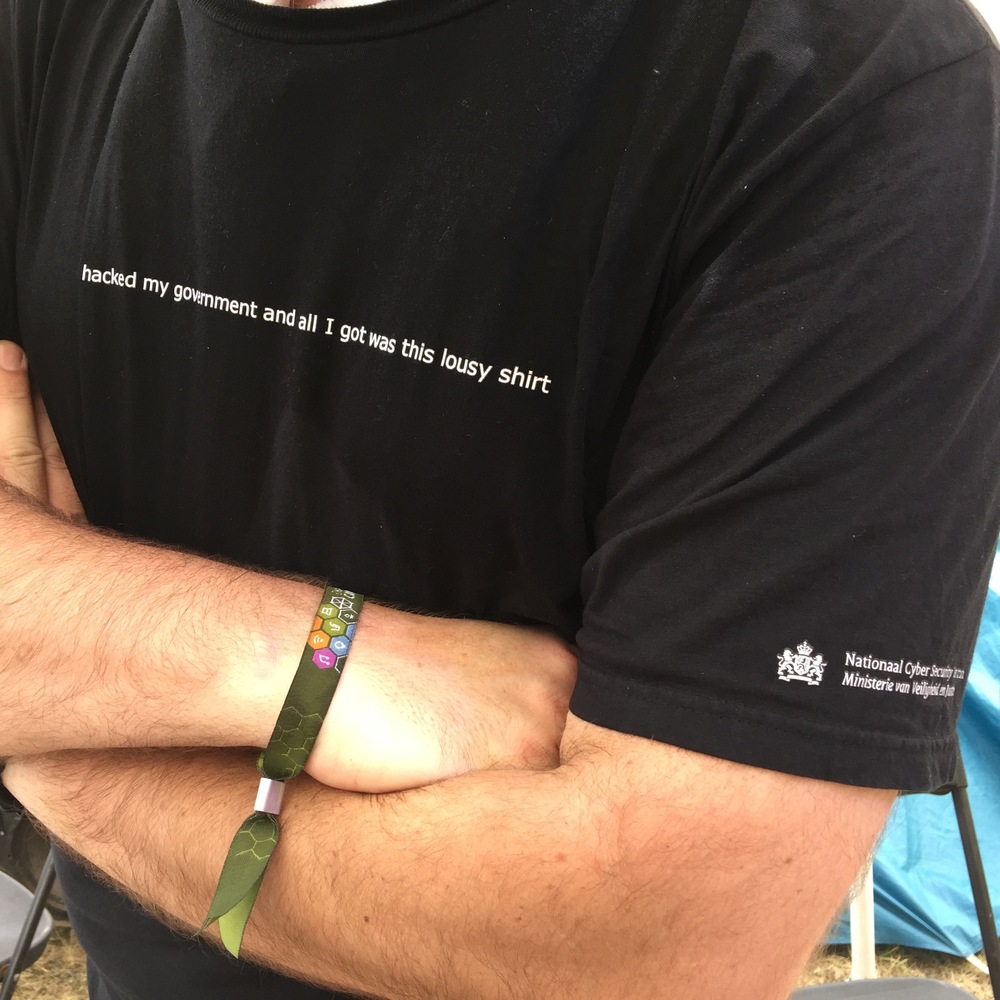
2. Sleeping outside under the stars.
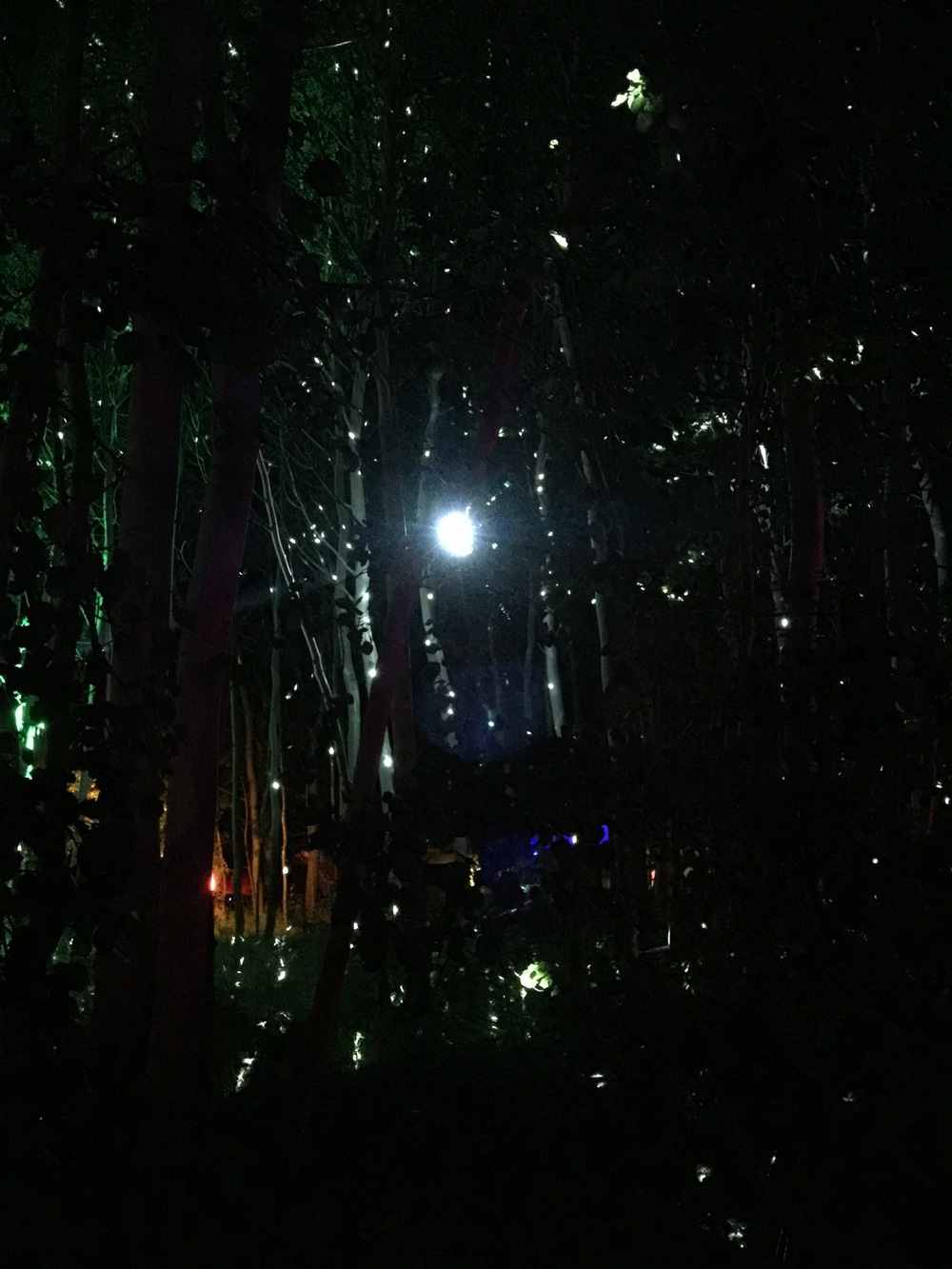
3. Sky-diving with Sarah Harrison & friends.
4. Lasercut-fitted butterfly wings and matching ballerina-fairy-princess ensemble. Directions for making your own wings, video of Wtf Butterfly lightning talk coming soon.
5. Lightning talk—scarier than sky-diving, but done! Good ideas and people. Good practice for the next, hopefully 45-minute version to a bigger audience. And for a prospective 20 minute presentation of my research on bias in polygraphy (lie detection) at Hacktivity in Budapest in October. And for feeling good on camera even when I’ve lost my foundation and been running around in the woods for days with my underwear inside-out and my birth certificate in my purse.
6. Plum wine.
7. Writing my first (slow down, girlfriend—latest prospective) Guardian essay under my new(ish) name in under an hour in a tent with some of the world’s foremost information security and investigative journalism experts.
8. Lake with laughing children and beautiful families, showing how normal and simple and wonderful life can be, even when one takes risks working on serious problems.
9. Making and drinking tea with new friends—so many new friends—and old internet acquaintances. Finally meeting two particularly heroic and deeply admired female writers on contemporary surveillance state issues, Asher Wolf and Biella Coleman IRL. Blue-haired people.
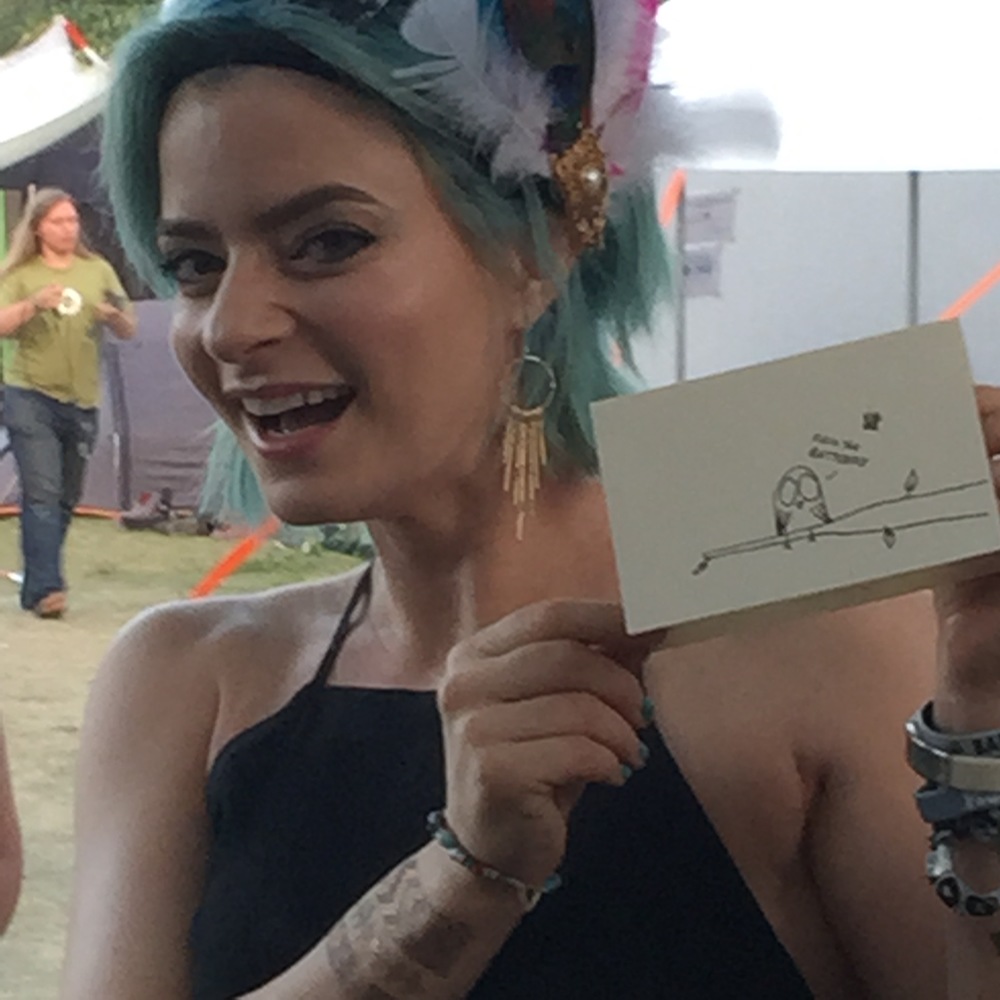
10. Skinny-dipping and civil disobedience with Keith Downy of the PayPal Fourteen.
In/near Berlin? Come to these awesome lightning talks tomorrow, the last day of Chaos Communication Camp ’15!
On gender equity, inclusivity in hacking.
On Internet freedom, distributing art and info (sec) globally.
Thanks to everyone who made these exciting happenings possible! Looking forward to productive dialogue on these and other favorite topics, hoping to not break my butterfly wings hugging people (again) before camp ends…
Continuing the gratitude-listing tradition, here’s a quick (challenge yourself, Vera! WRITE A SHORT THING!) post on ten things I’m grateful for after an unbelievable week in and around Lisboa, Portugal.
1. Publishing my first book in online illustrated, free ebook, and physical form.
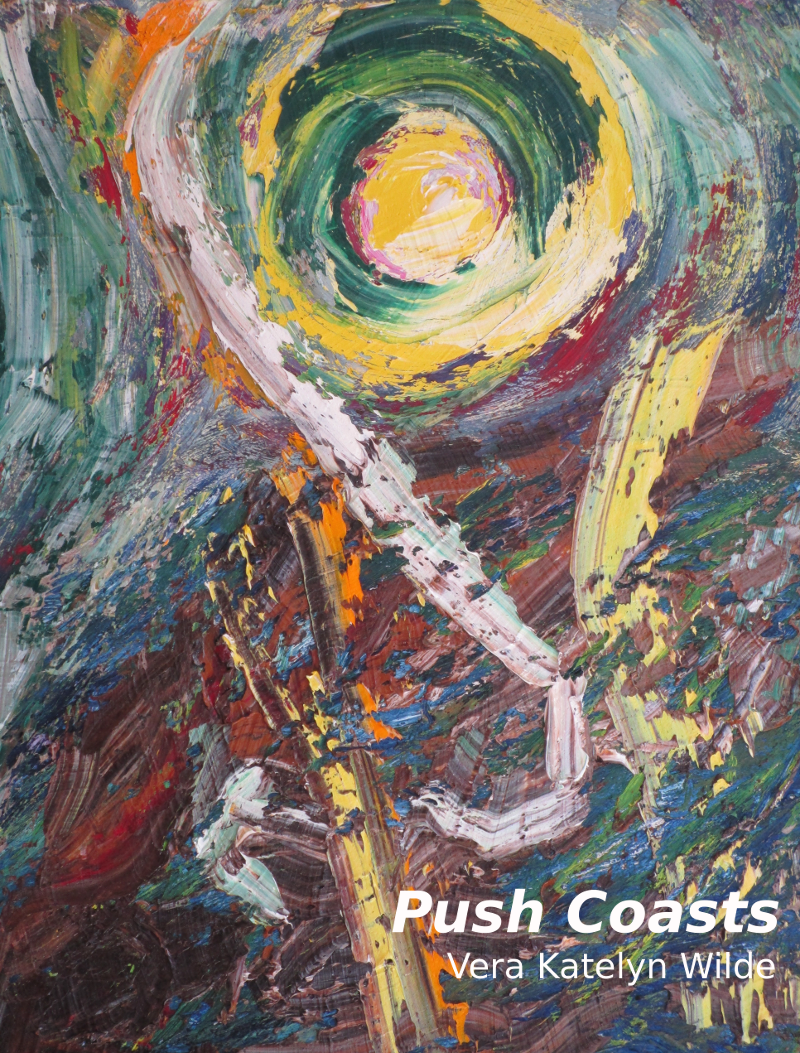
2. Thinking about preparing for my lightning talk on Crypto and the Dark Web at Chaos Computing Camp 2015 outside Berlin this week.
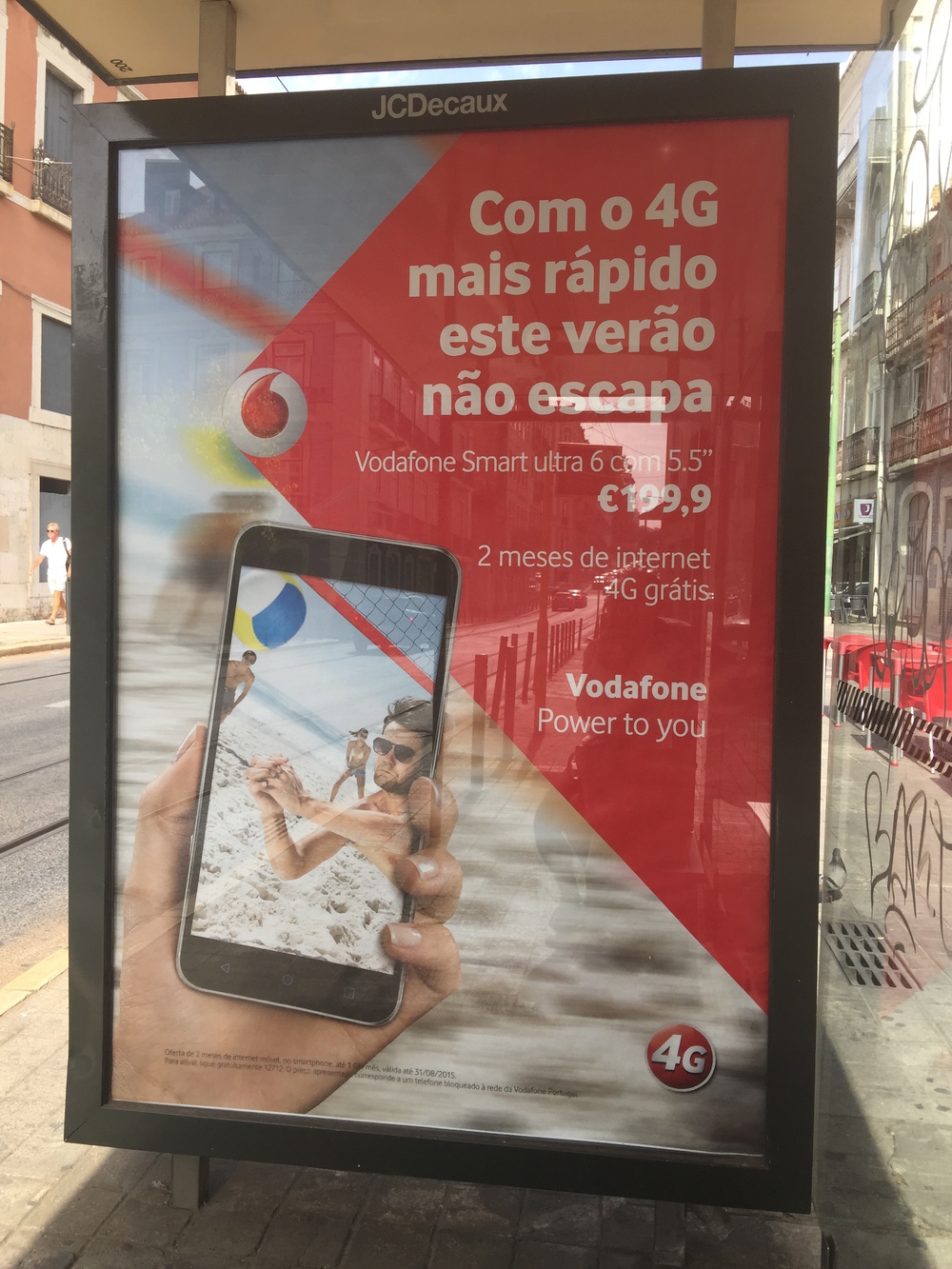
3. Pierre Lindenbaum’s lovely drawing of one of Dennis van Zuijlekom’s amazing photo-portraits from Hack42.
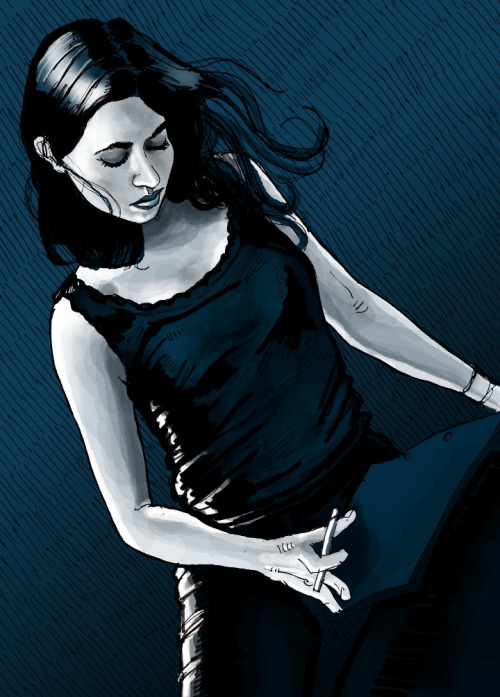
4. Camping right by the ocean with a dear friend at the Westernmost edge of the European continent.
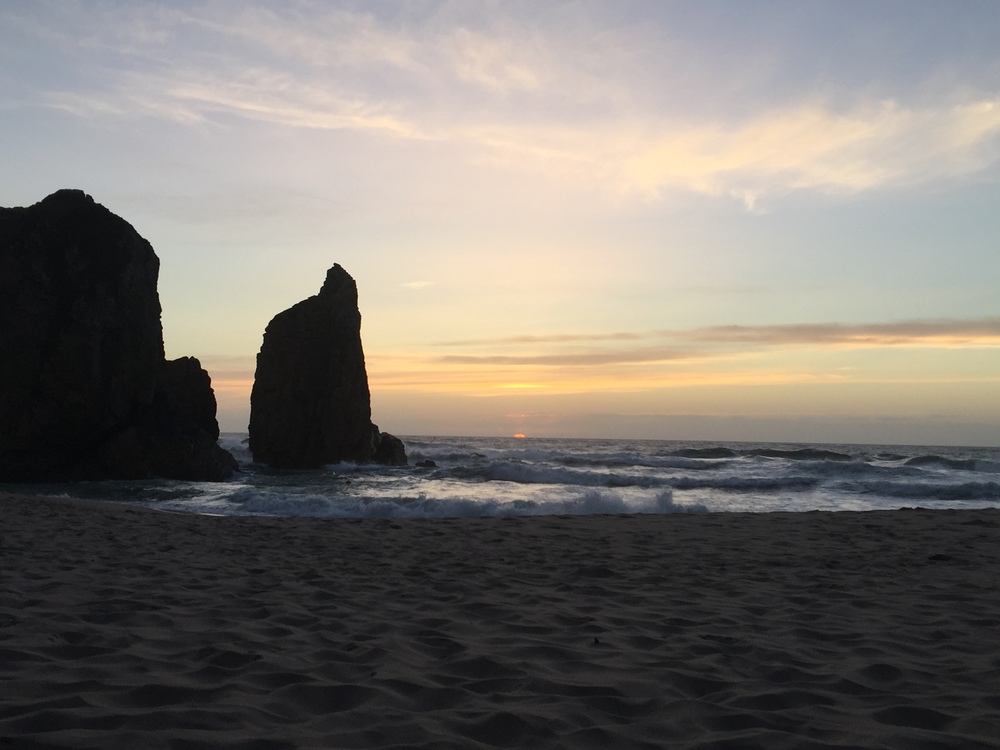
5. Rodrigo, Tom Drake, and what they told me about time. It makes me angry and ecstatic at the same time—Desassossego, as the Portuguese poet who lived across from Rodrigo’s eponymous bookstore would have it. Quiet on the outside while a revolution rages within. How you don’t give up rule of law to get it—just like you don’t trade your time for living now in the hope of having a life another day. Because time and people are irreplaceable. And holding sacred life, liberty, and the pursuit of happiness is what we do as free people. How we do it is the art of expressing and enacting our free will. It’s the greatest art of all. Someone should really write a book about that.
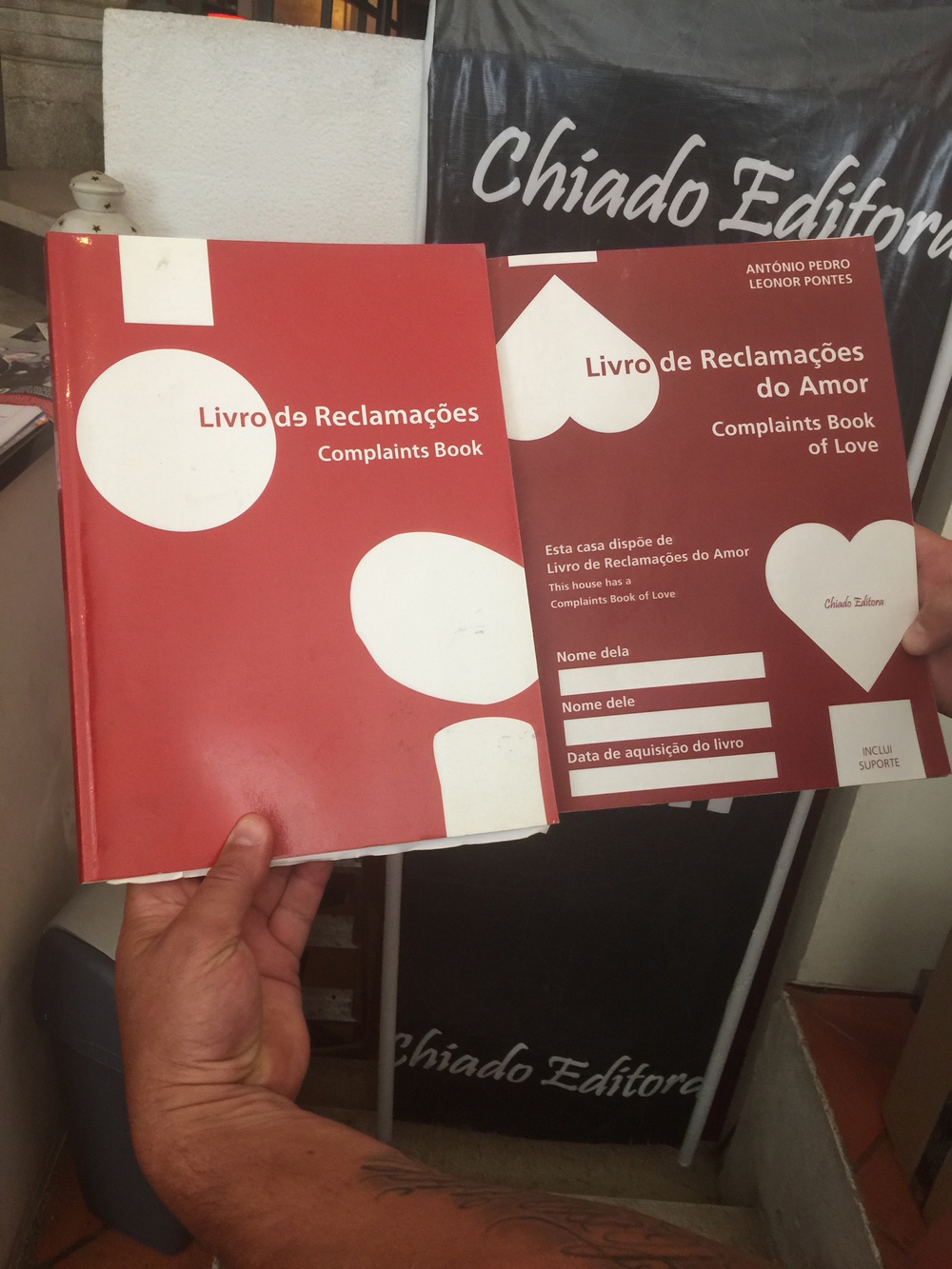
6. Back up. Deeply meaningful connection. I’m grateful for stumbling across Rodrigo’s gorgeous book store/wine bar/art gallery, Desassossego, where I wandered in and learned from the best about Portuguese poetry, applying J.S. Mill’s insights about unpopular or wrong minority opinions to theology (solving the problem of evil coexisting with an omnipotent God), delicious Portuguese beet juice, how smart, kind men with motorcycles and tattoos make time disappear, and the beautiful gift of Antologia de Poesia Contemporanea Vol. IV that immediately yielded this random but hilariously appropriate poem—
“plano de contingéncia”
Heleno Pinhal
acordei sem desejo
virei-me e adormeci
no cérebro um cortejo
como eu nunca previ.
transform-me em relogio
rodo-o ao contrario
sono vira refugio
e altera-me o horario.
almofadado, terno
sem poder descansar
ha poemas dum inferno
a atacar pelo ar.
7. Forthcoming poem in The Science Creative Quarterly and interview in Redbird Review that were fun.
8. Distinct feeling that art explosions are imminent. Must paint, still figuring out how to explode oil paintings while traveling since this generates small problems of storage and such. But I’m grateful, too, for S in Brighton letting the paintings I made on her porch brighten her living room since I don’t know what else to do with them and she was so kind to host me. And I’m grateful that I will figure out how and where to make myself a little nest somewhere with a month’s stability, where I can explode paintings and songs. That might come next after drafting next book, which would be fine and might (someday?) generate income? Right now I am just doing what I have to do, which is make art and travel, and trusting that part of this life experiment is figuring out how that works.
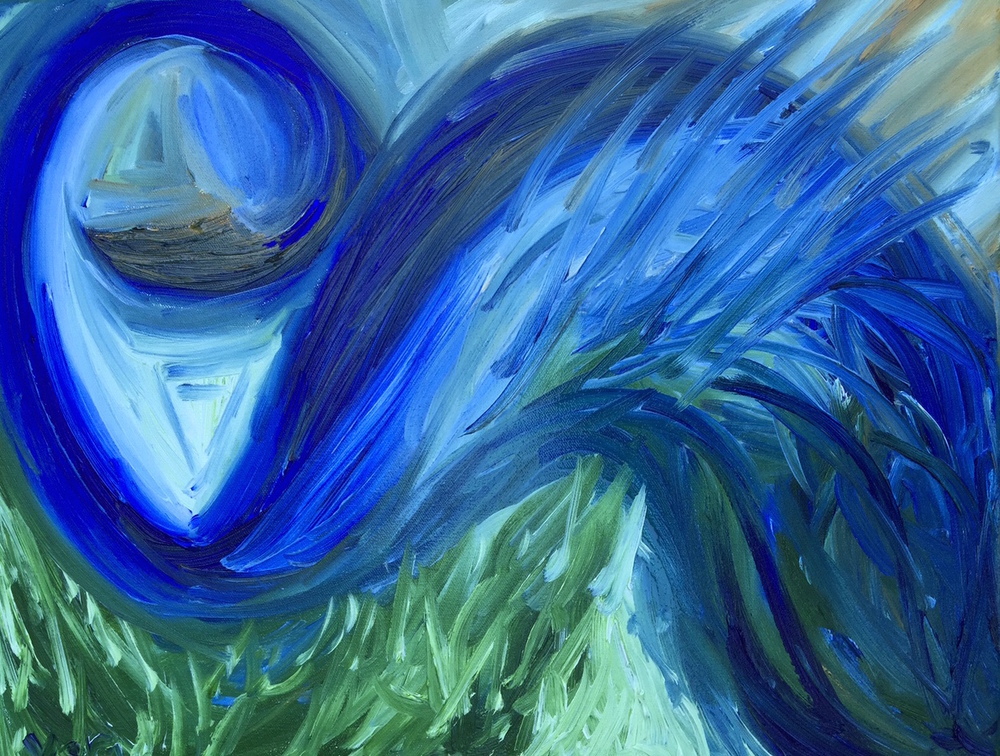
9. The feeling also that I am in the process of finding my voice. I still wish I had it better clarified and made more noise (music, comedy—podcasting, stand-up, improv). But clearly I’m a painter and a writer first. And I’m talking with lots of interesting, nice people. So if my art is going to involve making more noise, this is how I’m going to get there. I’m showing up to it. And the more I show up, the more I feel and know that the world needs what I have to give it, and a lot of people care about me. Weird as I am.
10. Freaky good intuition. Trust in the universe. Amazing music for free, in playlists tailored precisely to what I like and might like to learn that I like, on Youtube throughout Western Europe. (That’s beyond an old utopian fantasy—maybe it was Fourier? Someone thought it would be heaven to have music pumped in wherever you went. We have that now, and so much more.) Tasty fish. The ridiculously beautiful French family who made a little bit of world peace by the water where I like to write, watching their little girl in a sparkly butterfly dress feed her pastry to pigeons.
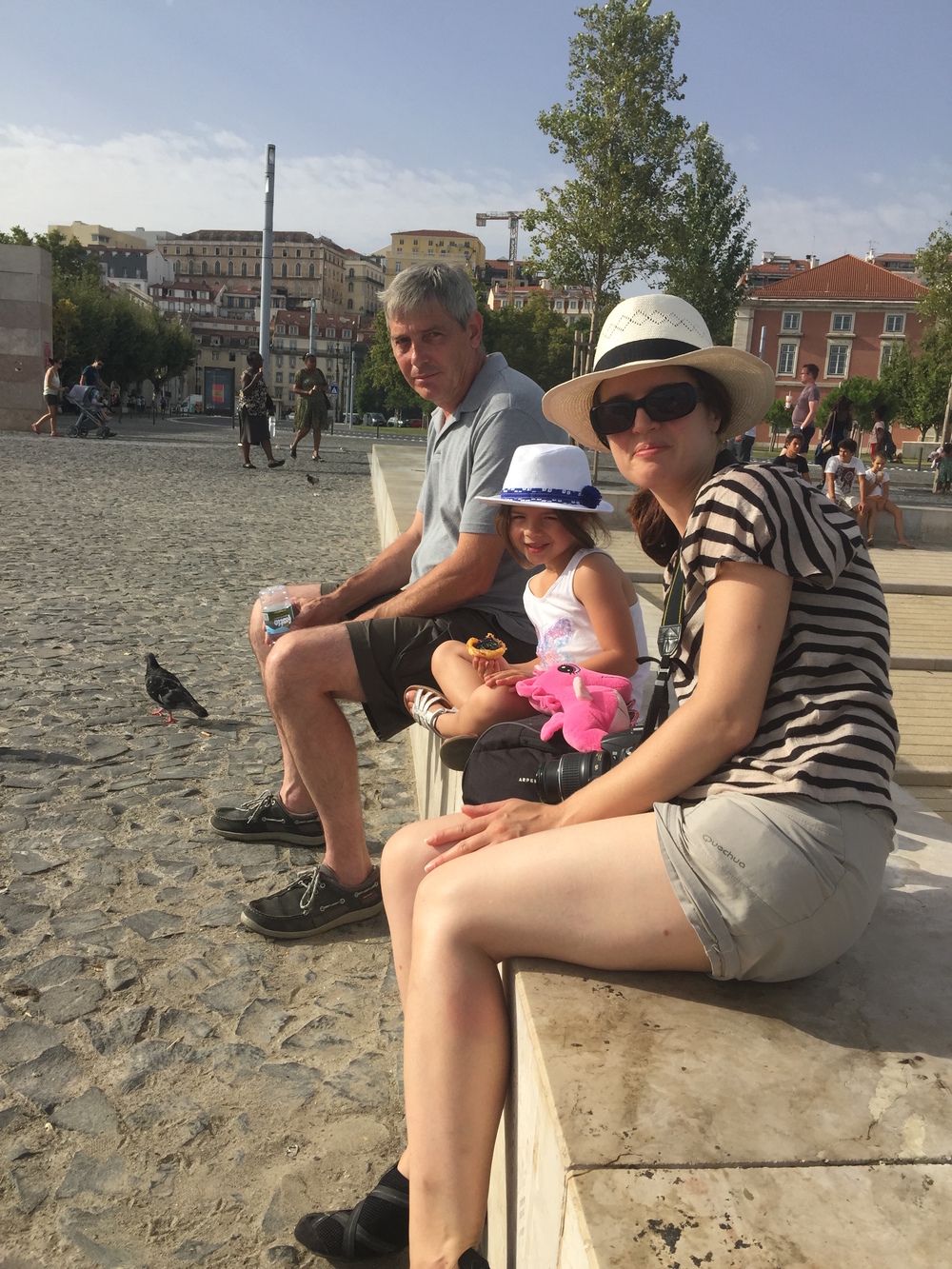
This is not one thing. It never is.
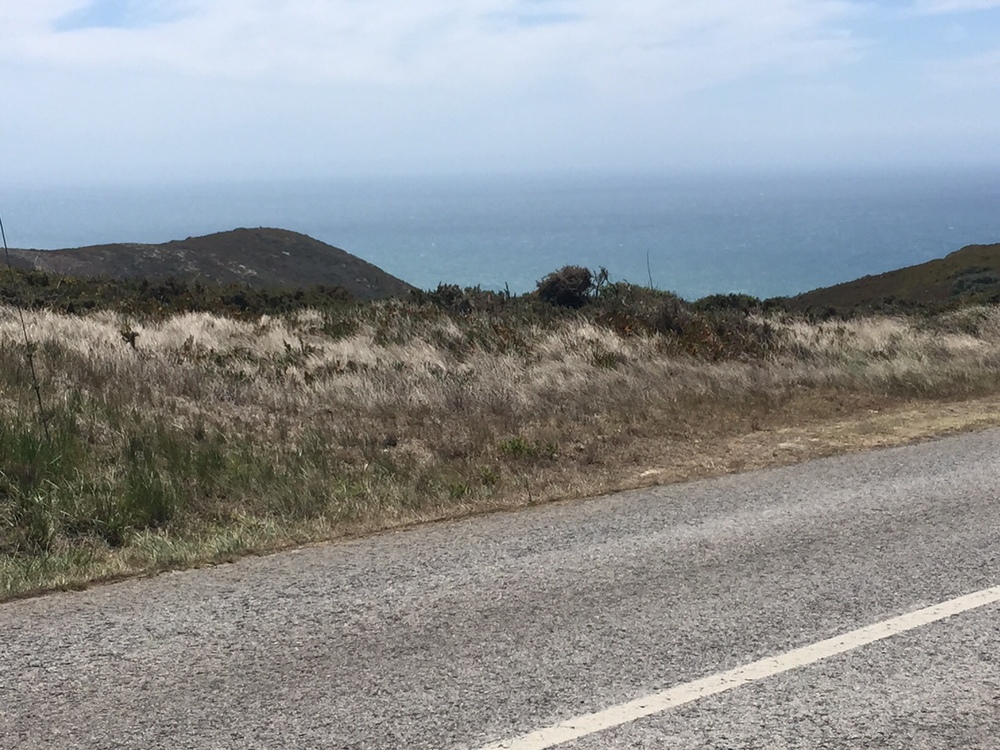
Walking Portugal is helping me orient to two next projects. First, the first-next priority project. And second, a new researcher-practitioner collaboration tool that I’m seeking collaborators on.
Too Big to Surveil: Next Book Is Next
First, an announcement of my next priority project. I want to do four things in the next 4-6 weeks. I have to pick one priority in order to get things done. This is normal.
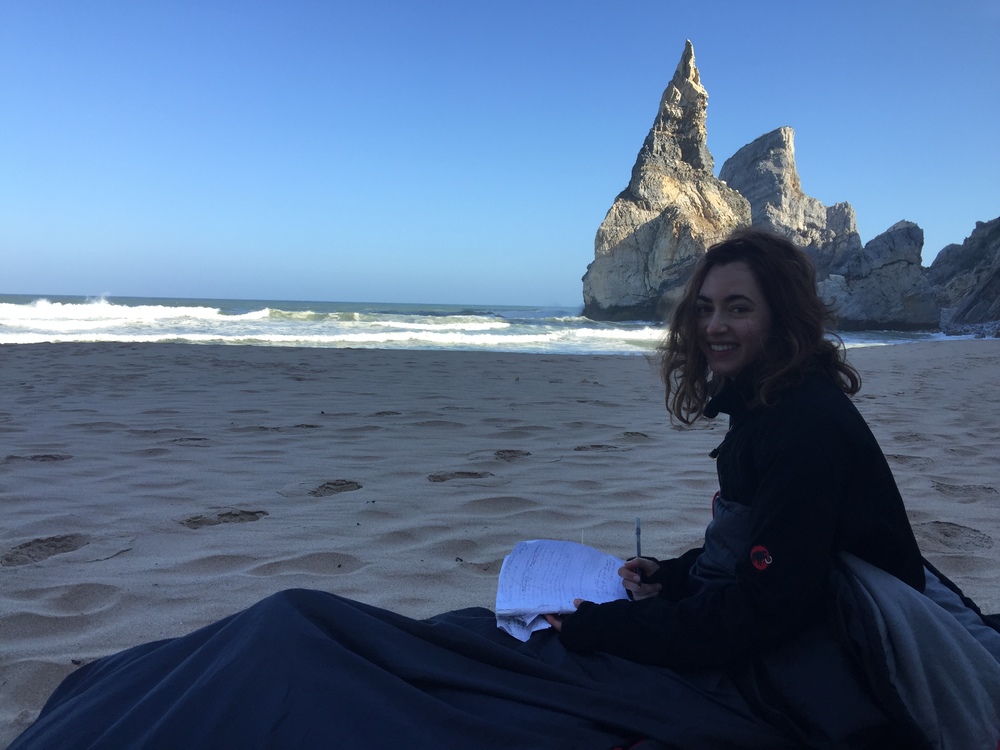
The four things are: making the apocryphal album, writing the next book (having just published the first), shutting down all the defunct interrogation programs in the world, and making a researcher-practitioner share economy sort of web platform.
The album will have to wait until I have better music-making infrastructure in place in my life—perhaps in Berlin in the fall? Did I mention I might move to Berlin? Or back to London? Or New Zealand?—but I can keep collecting song snippets in the meantime.
The book will have to happen now because I am always writing. The shutting down of the defunct interrogation programs will have to fit into the book as a result of the always-writing business. That works out well because doing the book tour(s) gives me a platform to work the social justice project in a crowdsourced sort of way. And the researcher-practitioner website is a longer-term project, because that is not a one-person project and I have to have my own job to do right now.
So the top four potential next book projects were hard to winnow down to one. They were:
– Wtf, World?! An artistic, scientific, and humanistic guide to the universe. An illustrated methods book applying chaos theory to social science methods in an unoriginal (Hayekian) critique of Popperian falsifiability that is somehow not usually taught. Also featuring stories about climate change from around the world, weather being a chaotic system like human societies. I started this project on my last blog, and it was my favorite child for a few months. Now I’m unsure who the audience is. An illustrated art-science methods book? Who does that?
– Too Big to Surveil: Tech, world peace, and chocolate. A translation of my dissertation and postdoctoral research and beyond for a popular audience. Also a constructive critique of the surveillance state and travel memoir. Sarah Vowell meets… Somebody much nerdier than Sarah Vowell.
– Interviews with Dead People. A historical, magical realist novel about soft power, derealization, and creativity—or, how art imitates life imitating art. Tim O’Brien meets Borges. Also started on last blog.
– Justice as Forgiveness. An illustrated poem, essay, and storybook about an unoriginal (Biblical, Stoic, Shakespearean) conception of justice that is orthogonal to all the most common justice processes practically—adversarial, inquisitorial, and restorative—and also to the most common justice theories philosophically—justice as fairness in the liberal tradition, procedural justice on the leading empirical edge, and others (e.g., Marxian and anarchist theories of justice as revolution). G.A. Cohen meets Randall Munroe. Also started on last blog.
While walking Portugal, I decided Too Big to Surveil would add the most value to the world most immediately. So that should be #1, and Justice as Forgiveness can be the #2 writing project I rotate to when I need to do a secondary thing since it’s more of a collage project and I am always doing more than one thing no matter how hard I try to focus.
But then a ridiculously beautiful little girl who saw me writing in a seaside café in Portugal asked me to write a children’s book instead. And so I fretted. What about the ten books in the planned Where the Wilde Thinks Are series of illustrated children’s books, of which I drafted two and got stuck on eight, and didn’t like the two I had drafted? And then I felt, and put my hand on my heart the better to feel it, and remembered Ceiling Ballerina and her story, too. What about her? What about the acting class—better embodied cognition, smaller motions with more feeling, closing more of the feedback loops between is and seems, and a long, social study of a Chekhov, Shakespeare, Ibsen, or Wilde? What about finding a way to teach early Platonic dialogues as art? What about Australia?
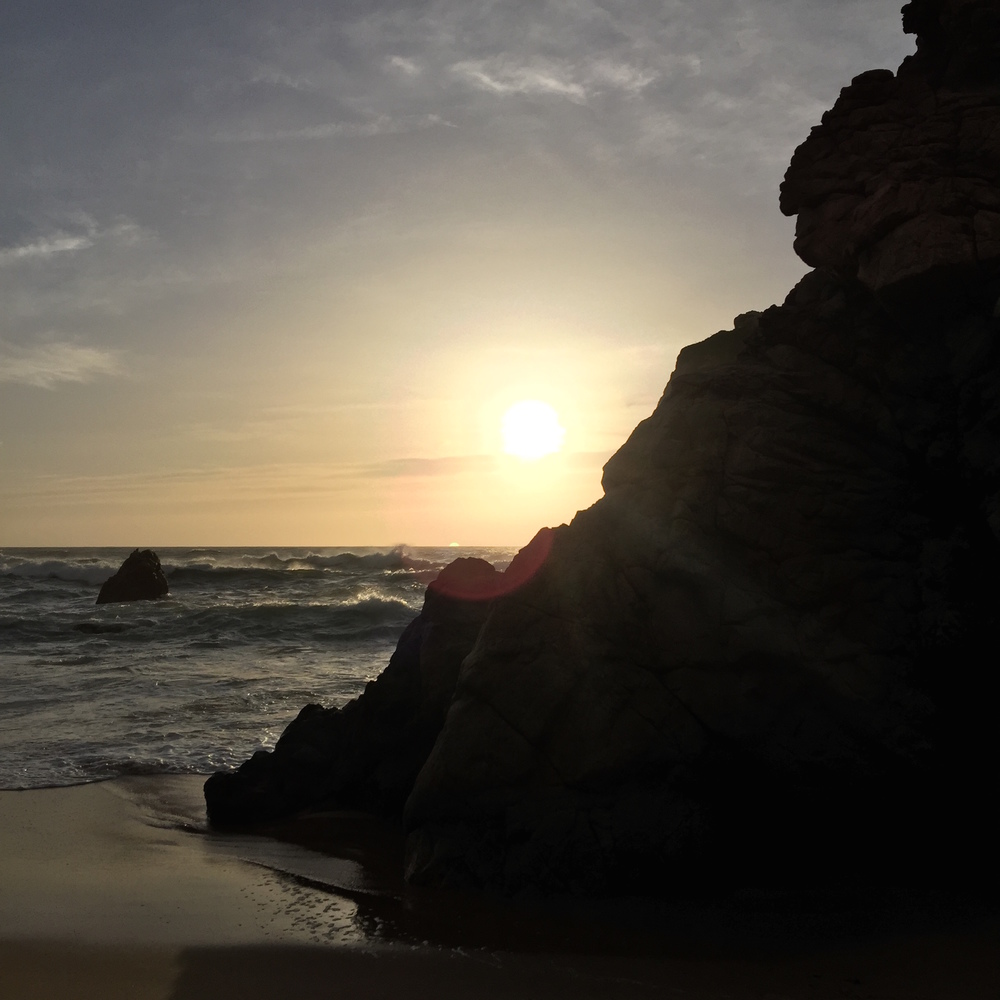
One. Thing. At. A. Time. First-next. For now. Too Big to Surveil. Book draft in 4-6 weeks. Goal. Set. Go! Well. Maybe after another walk.
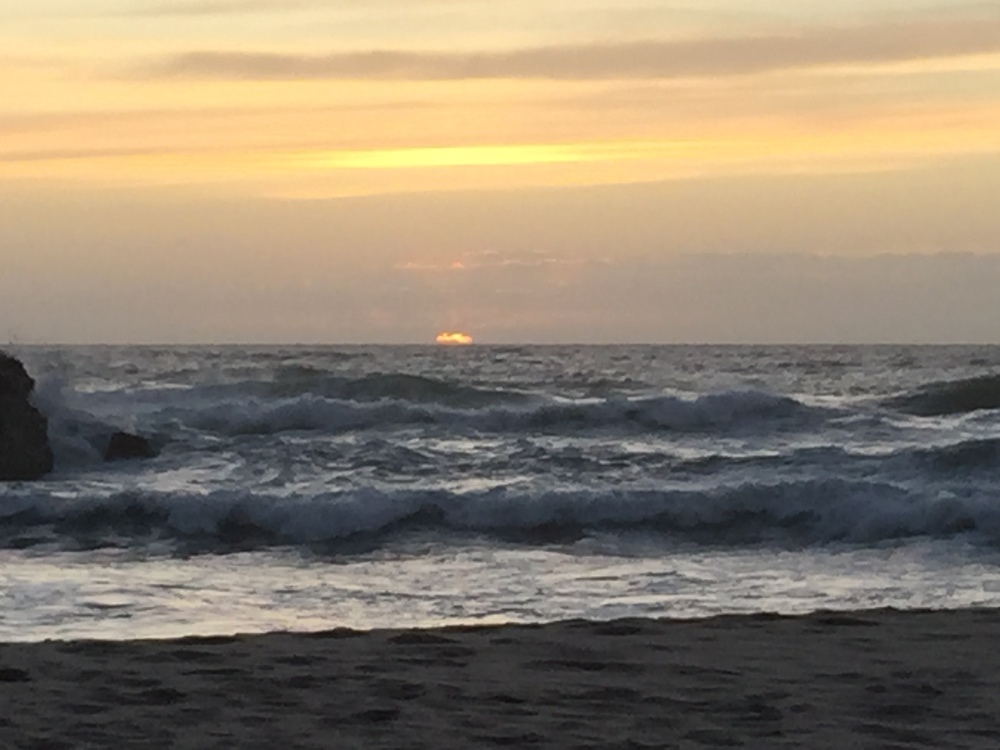
This brings me to the second announcement.
ISO Team of Heroes
Nerdy ones. Hard work, no pay, safe return doubtful.
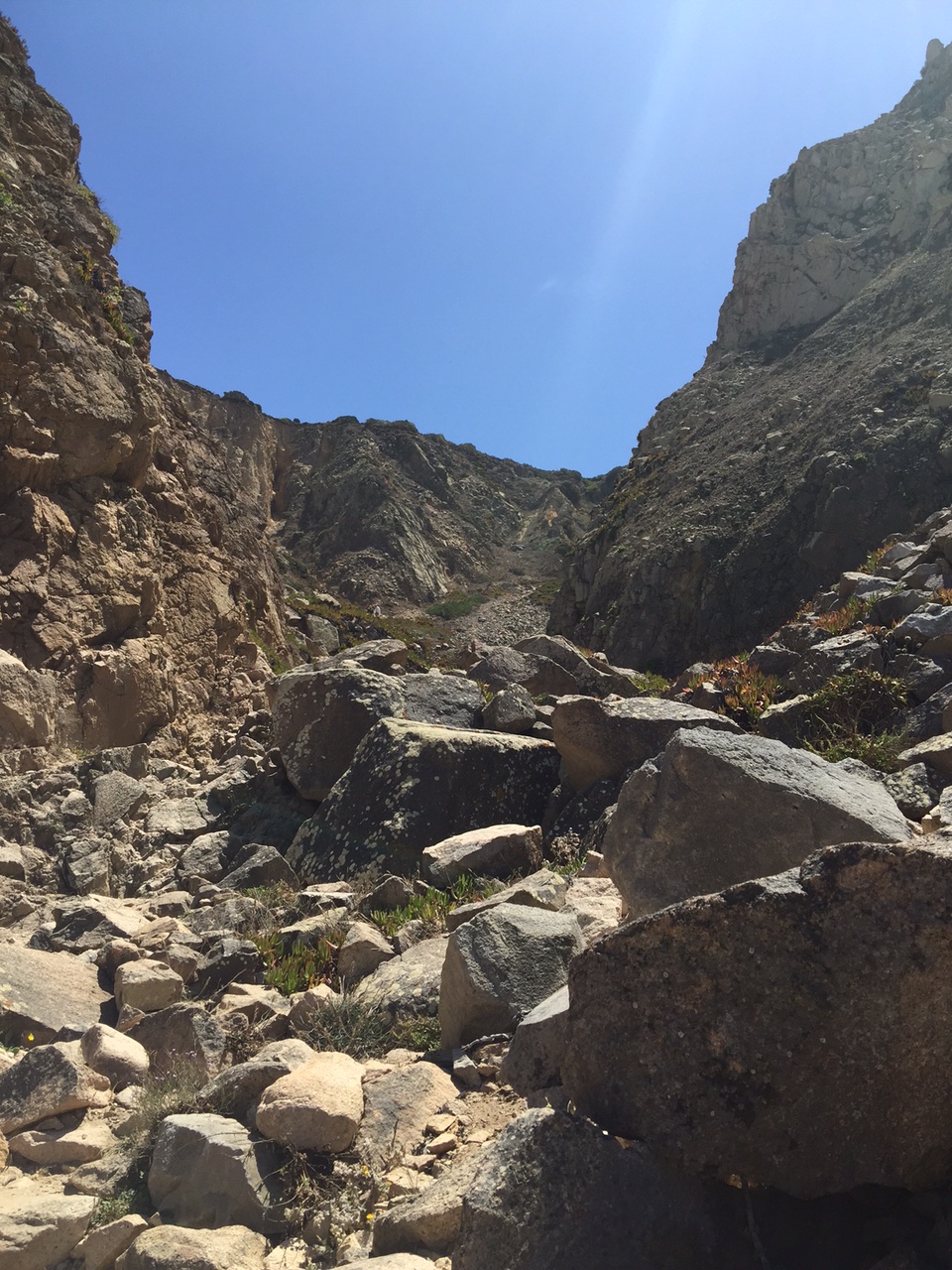
Let’s make a self-sustaining researcher-practitioner share-gift economy hybrid web platform. I will spend the rest of this blog post trying to say that again ten different ways in plain English, but in the meantime—reach out to me if you want to talk about this and maybe do this together, because it will be faster and more fun that way.
The share economy is stuff like TaskRabbit, Lyft, and AirBNB—relatively new businesses that work on an online, end-to-end user model. So they make money, as I understand them, by serving as middlemen between people who want something and people who have it to give, just like most any other business. But share economy businesses usually do that by connecting freelance workers with ordinary individuals who need something small and basic, like help waiting in line for a moving permit (TaskRabbit), getting to work without a car (Lyft), or finding a place to stay for a bit in a strange city (AirBNB).
Sometimes, the share economy overlaps with the gift economy. CouchSurfing, for instance, connects kind people who have a spare couch with decent vagabonds who need a place to crash—mostly when both sides are also looking for community, meaningful human connection, and to share an experience rather than simply exchange value (money) for value (good/service—here, lodging). In this case, the share economy will overlap with the gift economy as some practitioners (businesses, public service organizations) will want a particular problem solved on a particular timetable on a particular budget (which works on the share economy model)—while other practitioners will just want to invite community researchers to see how they work, to learn and help learn (gift economy model).
It’s important to set up a platform that works on share and gift economy models now, because somehow the share economy has not yet expanded to bring together the worlds of academia and business or public service. But it’s just a matter of time before someone figures out how to do this (or that this needs to be done). And it should be done in a way that promotes the public interest, which means including options for share and gift economy, and for directed and open-ended collaboration. So we should do it, to make sure it gets done that way. But I can’t do this by myself.
This is what I mean by directed and open-ended collaboration: sometimes you want to solve a problem, and sometimes you just want to learn more about what works. It’s important to set up a platform that facilitates both directed and open-ended collaboration. Because we often don’t know enough as researchers about tons of stuff to know how best help most practitioners make their best practices better. But sometimes busy practitioners just want a problem solved, and researchers can learn from that, too. So both sides can benefit from both types of collaboration that are better in different contexts.
Overall then, the platform works on a business and research model that varies on a 2×2 matrix of share/gift economy in monetary terms, and directed/open-ended collaboration in research methods terms.
Here are three examples of what I’m talking about.
1. Policing. Local and state law enforcement leadership often express frustration with limited resources and revolving-door problems, like criminalization of drug and mental health problems that are really medical and community support network rather than criminal justice issues per se. Meanwhile, leading criminal justice researchers often express frustration with the U.S. drug law regime as a new Jim Crow. Why not help law enforcement leadership and criminal justice researcher leadership work together to field test alternate models, to show that what works in Portugal—the medical model of drug treatment rather than criminalization—could work in the U.S.? We have a resurgent heroin epidemic on our hands. People are dying. More people are probably dying because we’re addressing the problem the wrong way. And law enforcement are just trying to enforce the laws we’ve given them to enforce. But they are also always making discretionary choices in how they allocate limited resources to enforce interpretive and thus in some respects unlimited laws. So maybe they could use more help—not more criticism—in learning and helping others learn how best we can work together to protect and serve our communities. Maybe research partnerships can help them use their street-level discretionary power in ways that build evidence for better public policy.
2. Education. A lot of educators I know have expressed frustration with public administrative demands for evidence-based educational outcome improvement that measures improvement through standardized testing. There have to be better ways to apply Carol Dweck’s evidence-based growth mindset research on pedagogy that both meet public servants’ need for objective improvement metrics—for democratic accountability in the street-level application of policy-level innovations—and that meet expert educators’ need for discretionary power, creativity, and adaptability in doing their jobs.
3. Art and health. There is not enough arts funding for all the truth and beauty explosions we could all be making all the time. But in part that is because people don’t know about the empirical benefits of making it. For example, Pennebaker’s research suggests expressive writing has significant physical and mental health benefits. Maybe if a bunch of researchers worked with a bunch of practitioners to generate more of that evidence, we could get better arts funding and health outcomes alike.
All of this is basically just a search for a way to practically extend Carol Dweck’s research on mindsets to the way researchers and practitioners work together. Dweck’s research shows the “learn and help learn,” growth mindset correlates with better outcomes across professional, educational, and personal contexts, as compared with the “judge and be judged,” fixed mindset.
I am always thinking about this research because it applies to everything. And I am really bad at applying it. But getting better. And the getting better is all that matters. And that is the growth mindset.
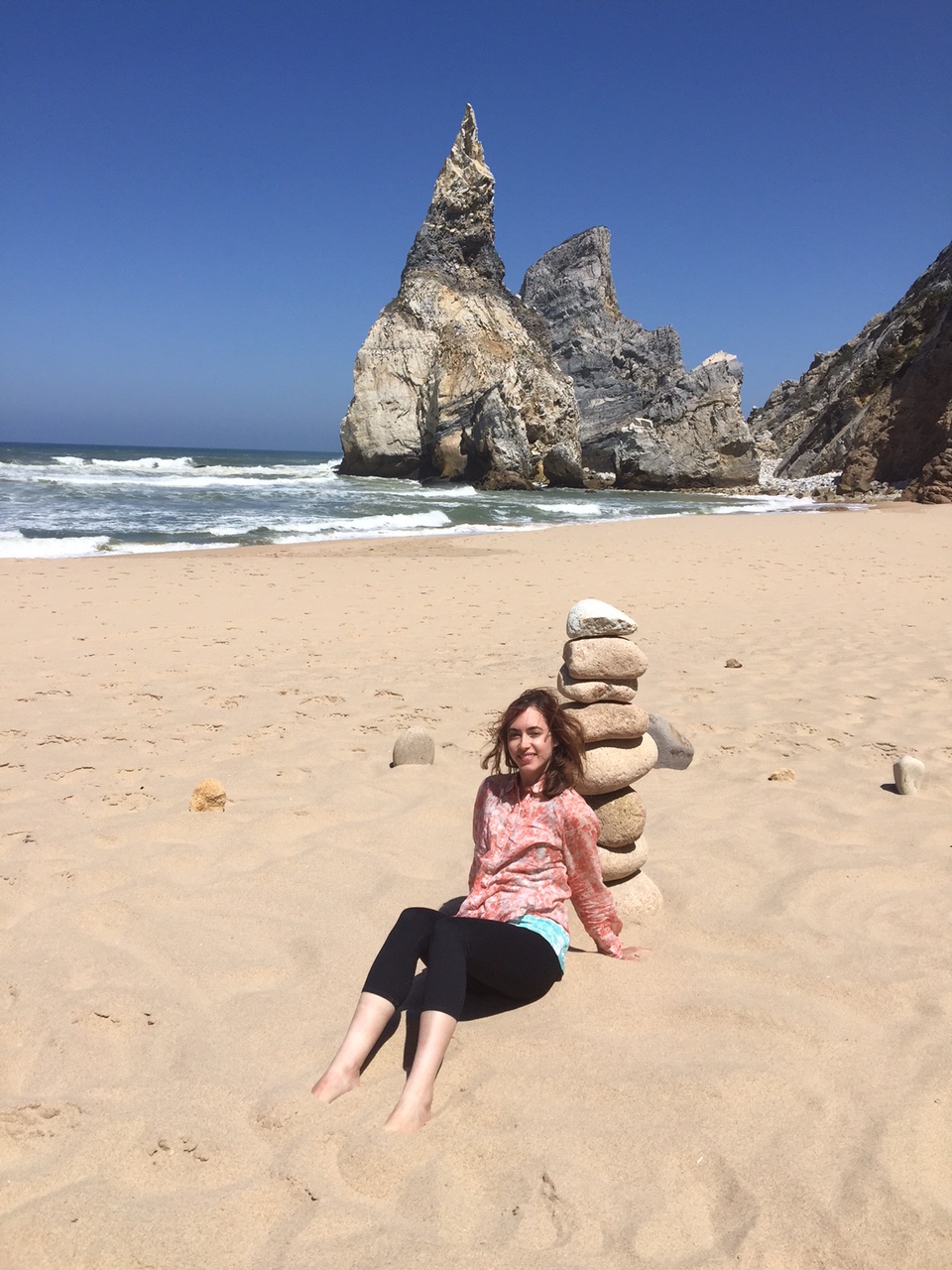
Researchers can be better about making constructive recommendations for how practitioners can make their best practices better. Everybody wins. And that is the growth mindset applied to research.
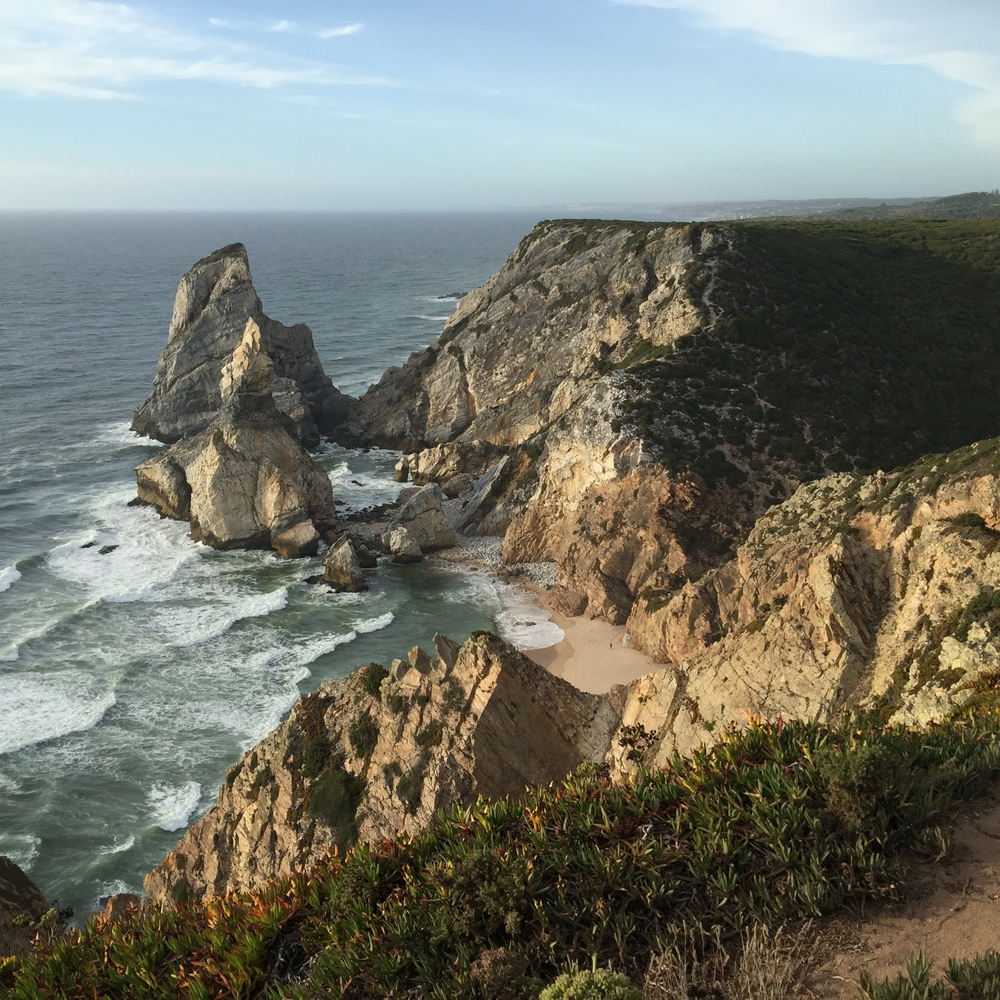
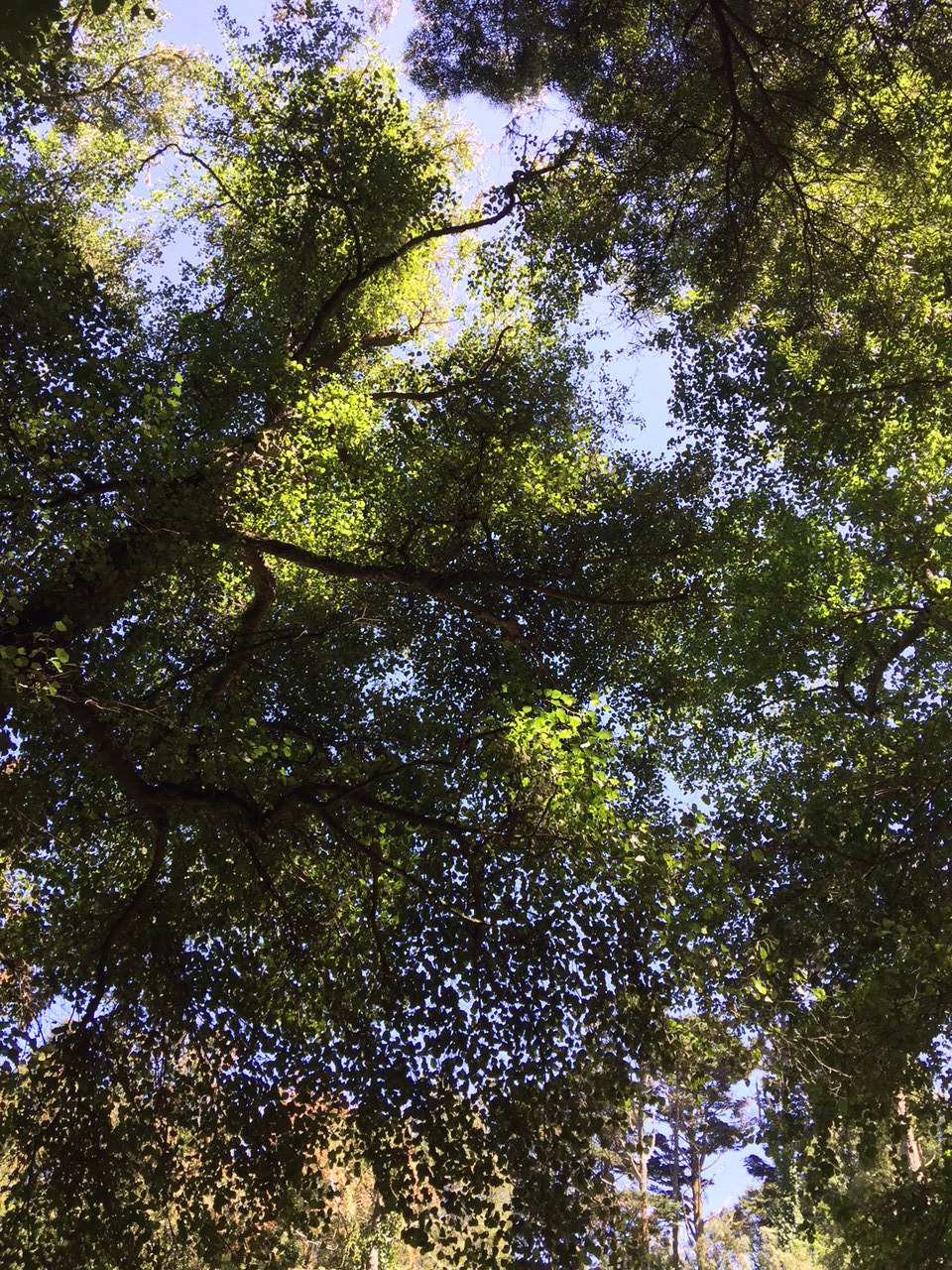
Did I say I was in Lisbon? What I meant was, I was in Lisbon.
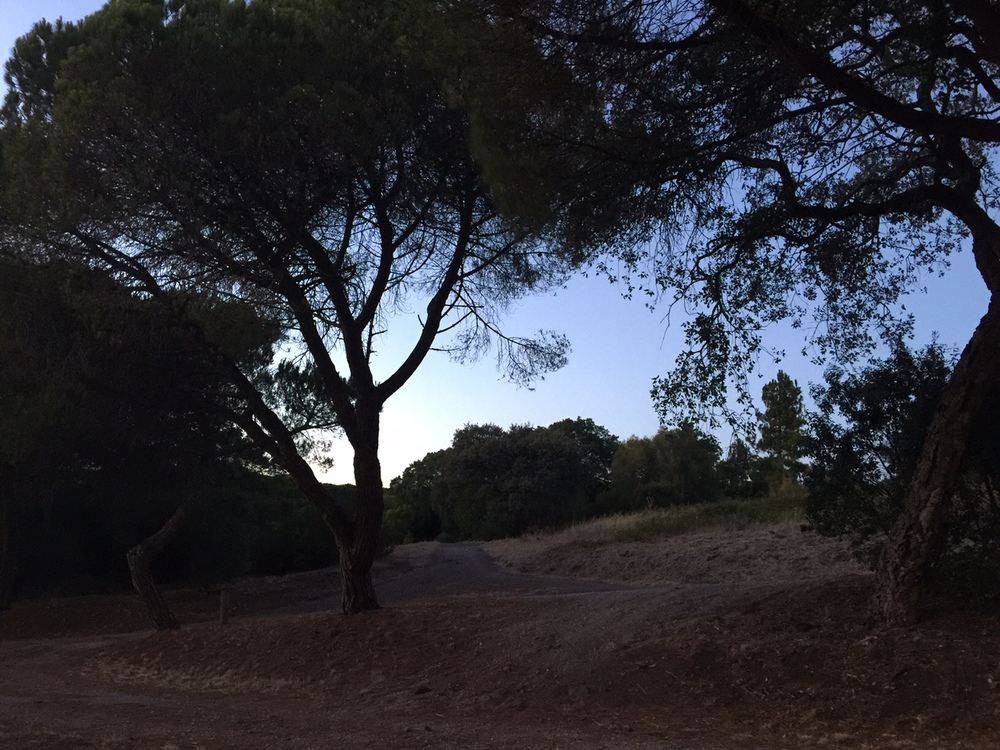
I seem to be on the road again. An EDTR web FAQ page exists—an interview in Redbird on my first book, paintings, surveillance, and more is done and coming soon—and I have almost gotten my next priority project down to one thing.
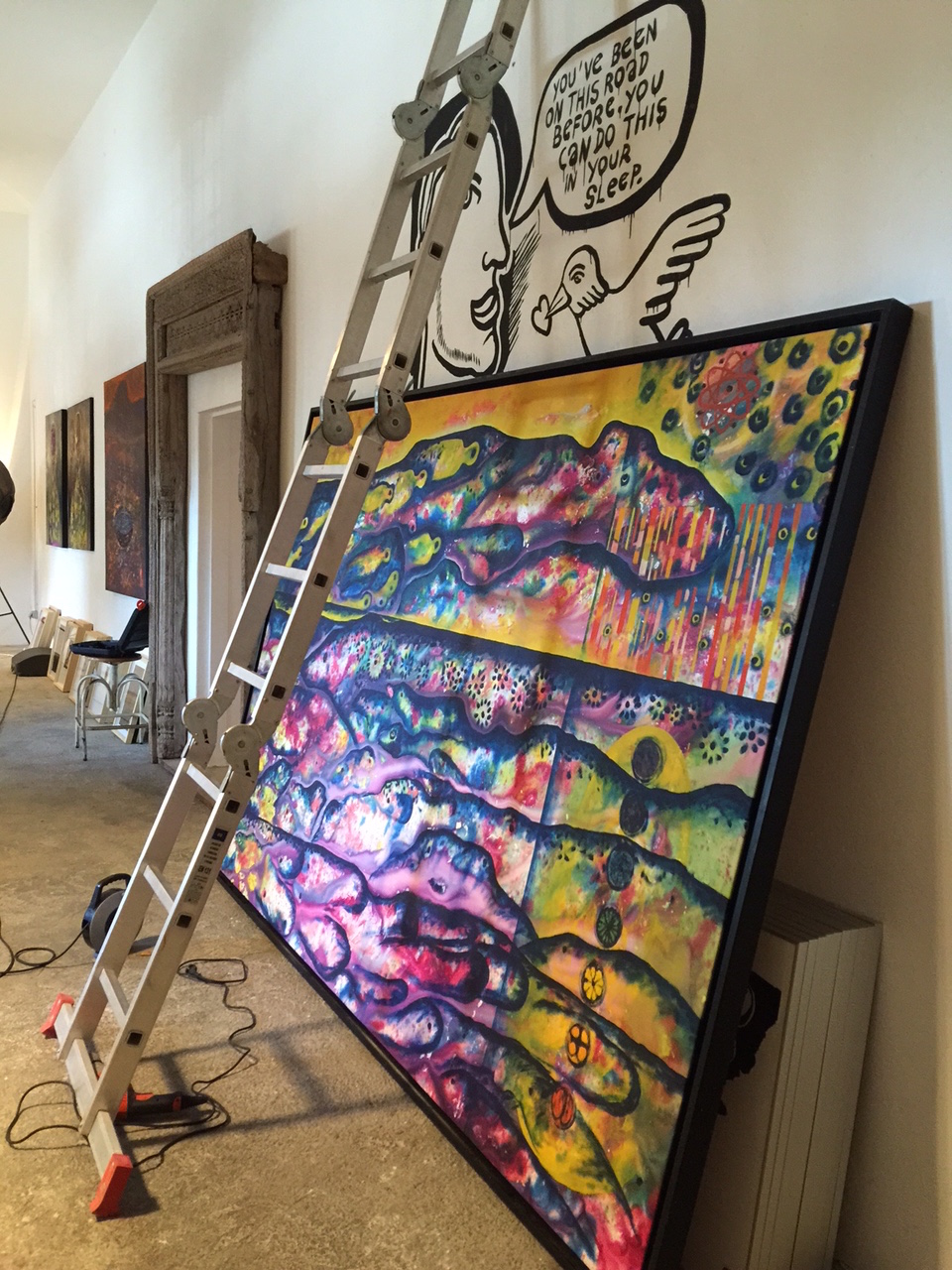
Actually, I had it down to one thing. But then a lovely French family accosted me in a seaside café as I re-combobulated my scribbles to ask if I was writing a book—I am! I am writing a book!—and they wanted it to be a children’s book after I drew one of their ridiculously beautiful daughters, and now I want it to be a children’s book, too, and I had a list of those, but it wasn’t flowing, the drafts weren’t good enough, and now I have to have another walk, think, talk, walk, walk, walk on the question of the next priority project. What is best. What offers most value to most people. Truth and beauty explosions eminent.
My first poetry book, Push Coasts, is out now in hard copy, free ebook, and online illustrated versions.

Back from the long final-edit walk here in beautiful Lisbon. And I only want to go walk some more. Or run. Dancing will have to do for the moment.
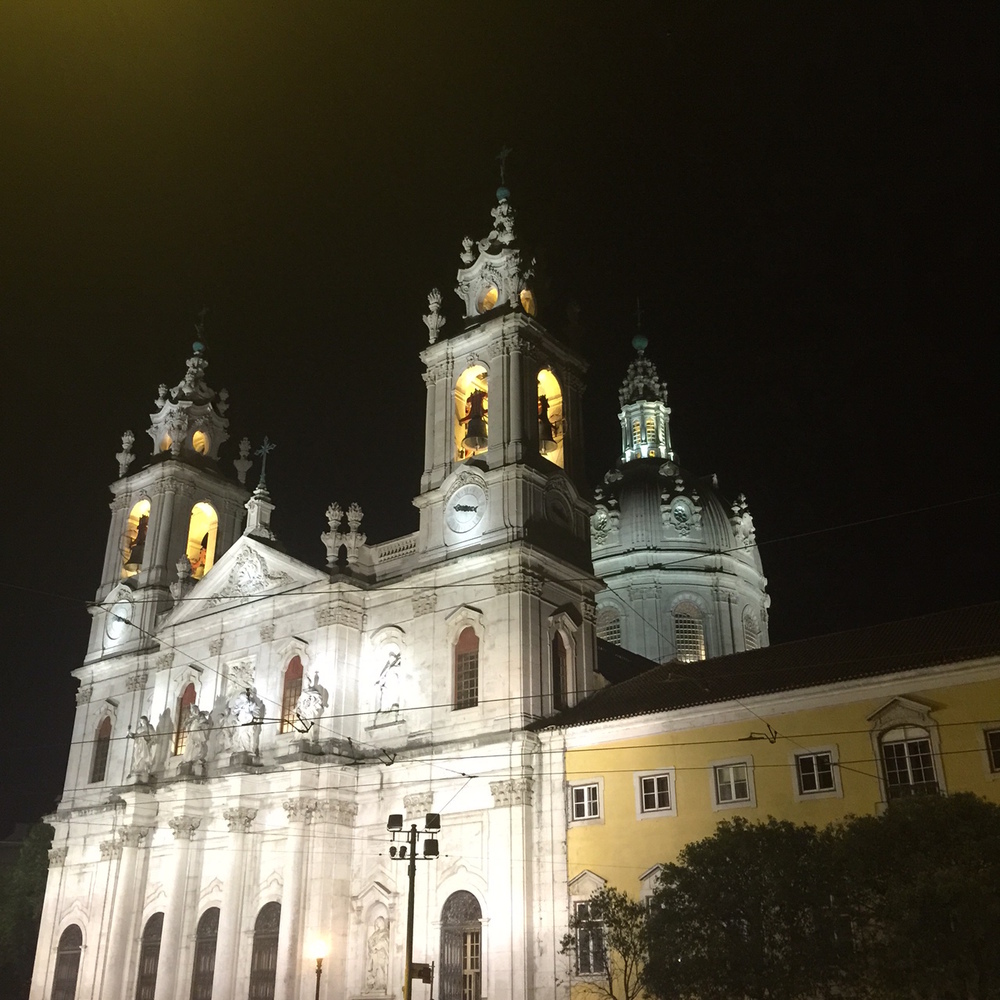
Thank you, Portugal.
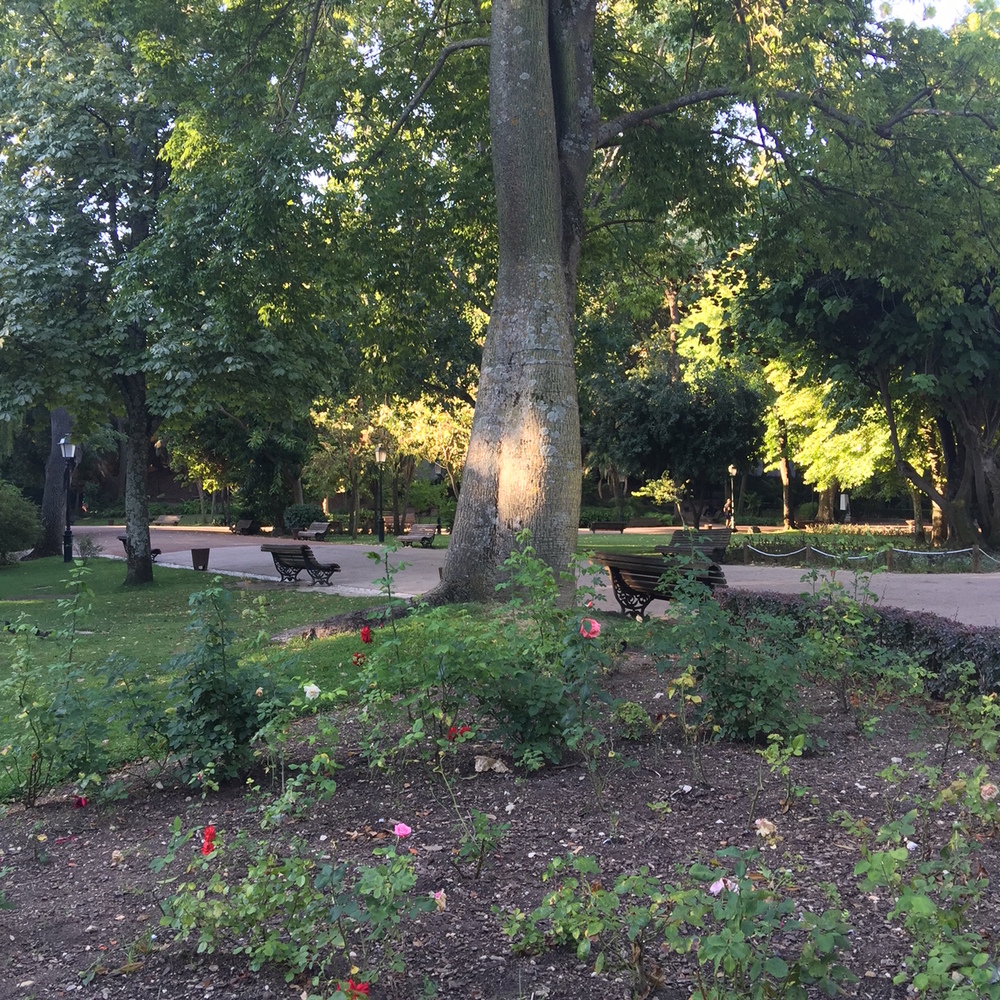
Thank you, Hack42.
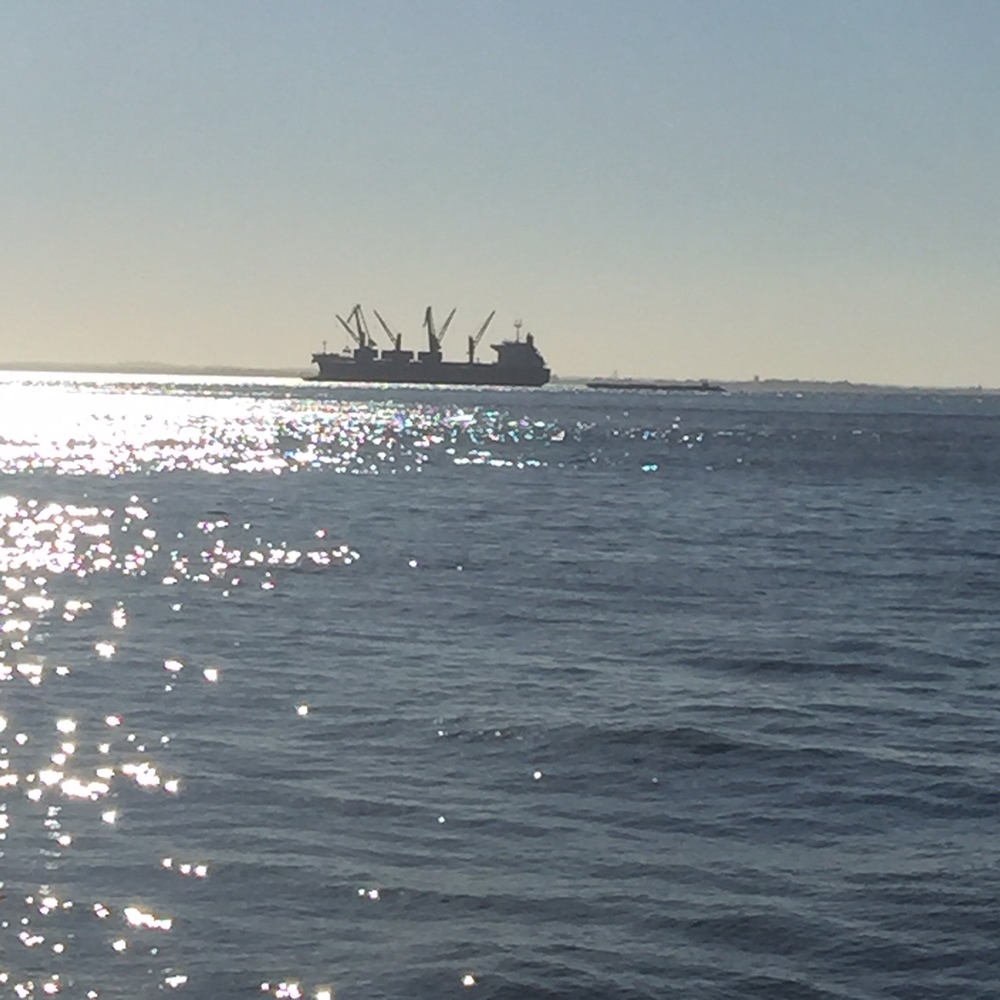
Thank you everyone who gave me bits of truth and beauty I gathered and stashed in this odd little nest of a book.
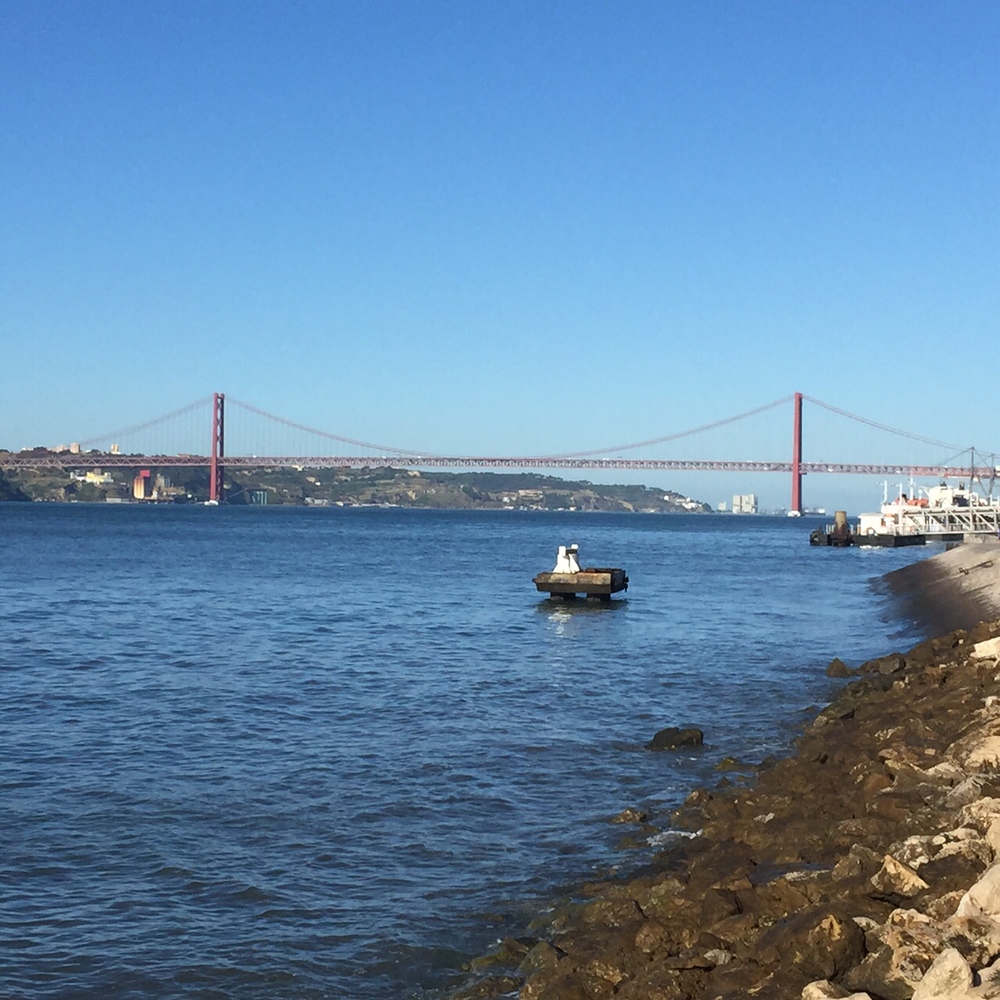
Thank you sanctuary and home in the world.
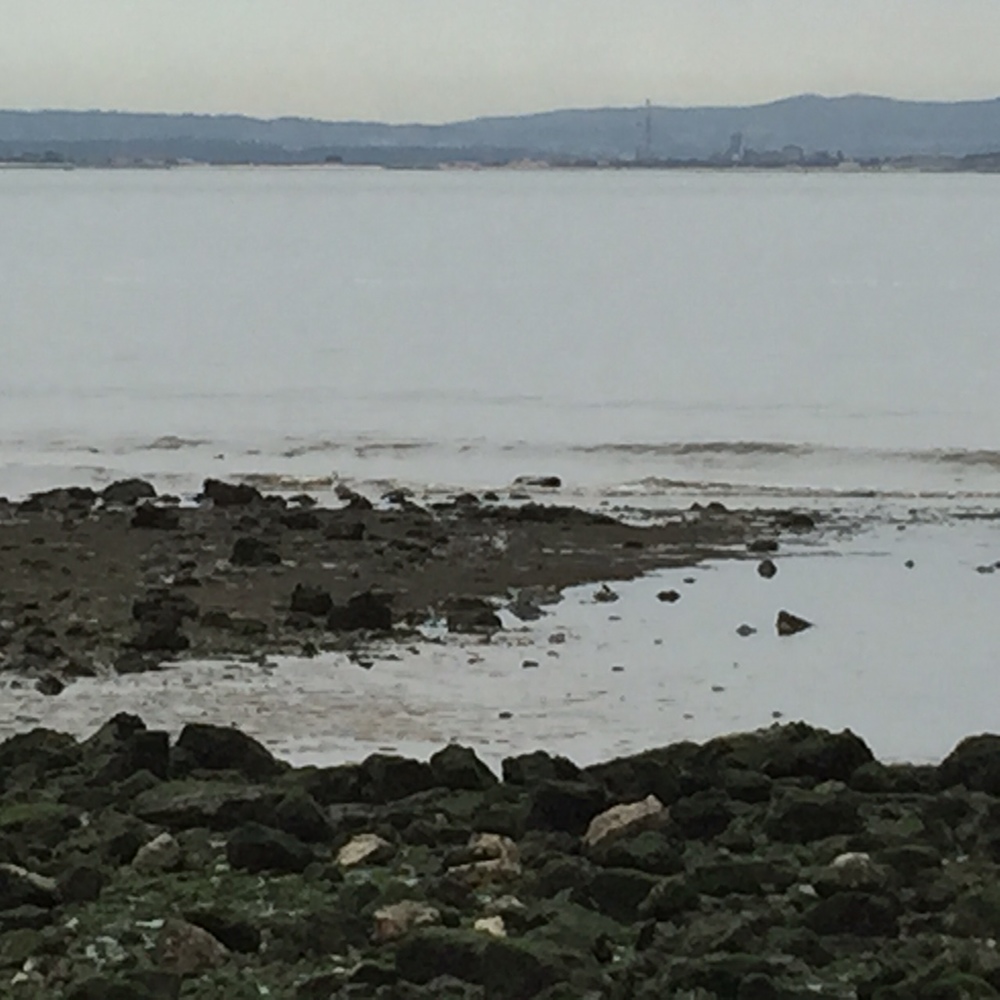
Walking Lisbon with a hard copy of the manuscript, talking it out, having one last go at the thing before calling it, putting it online free and illustrated, self-publishing it in electronic and physical forms (unillustrated, that you can pay for if you like), and then moving on to the next.
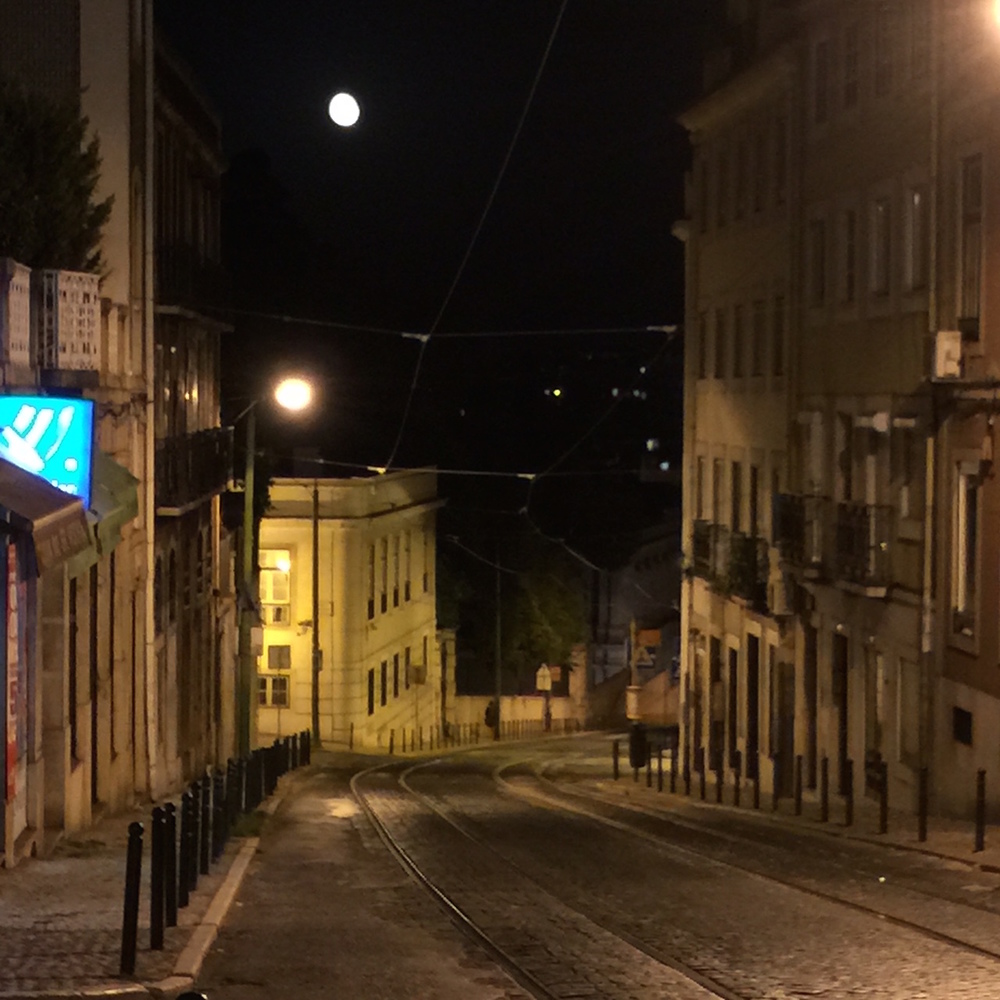
Meanwhile here [deleted immediately on advisement, sigh] is my brainstorming on goals that might someday eventually get somewhere as a reasonably reasonable orientation to goals. Closer. Help. Don’t help. I’m figuring this out. This thing is on. Hush. Tell me what you think. But don’t talk to me right now. I’m going for a walk.
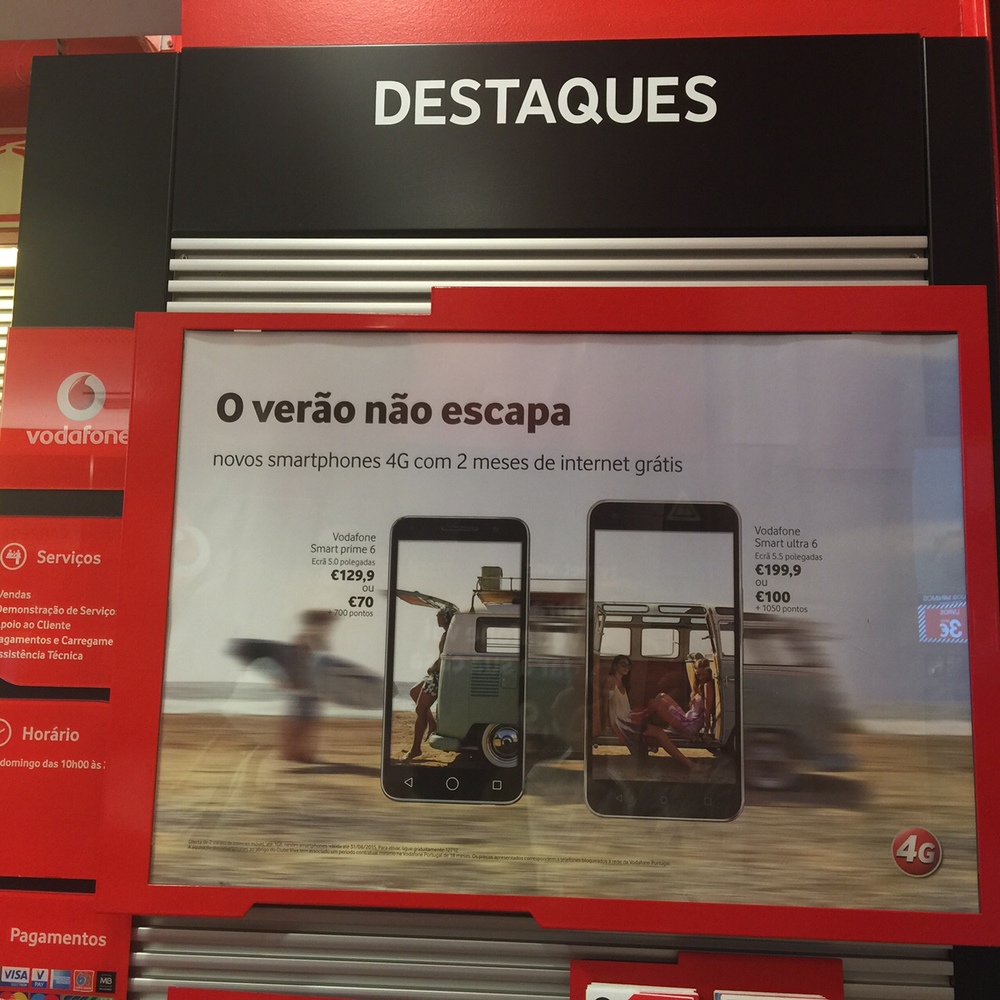
It’s still a new dawn.
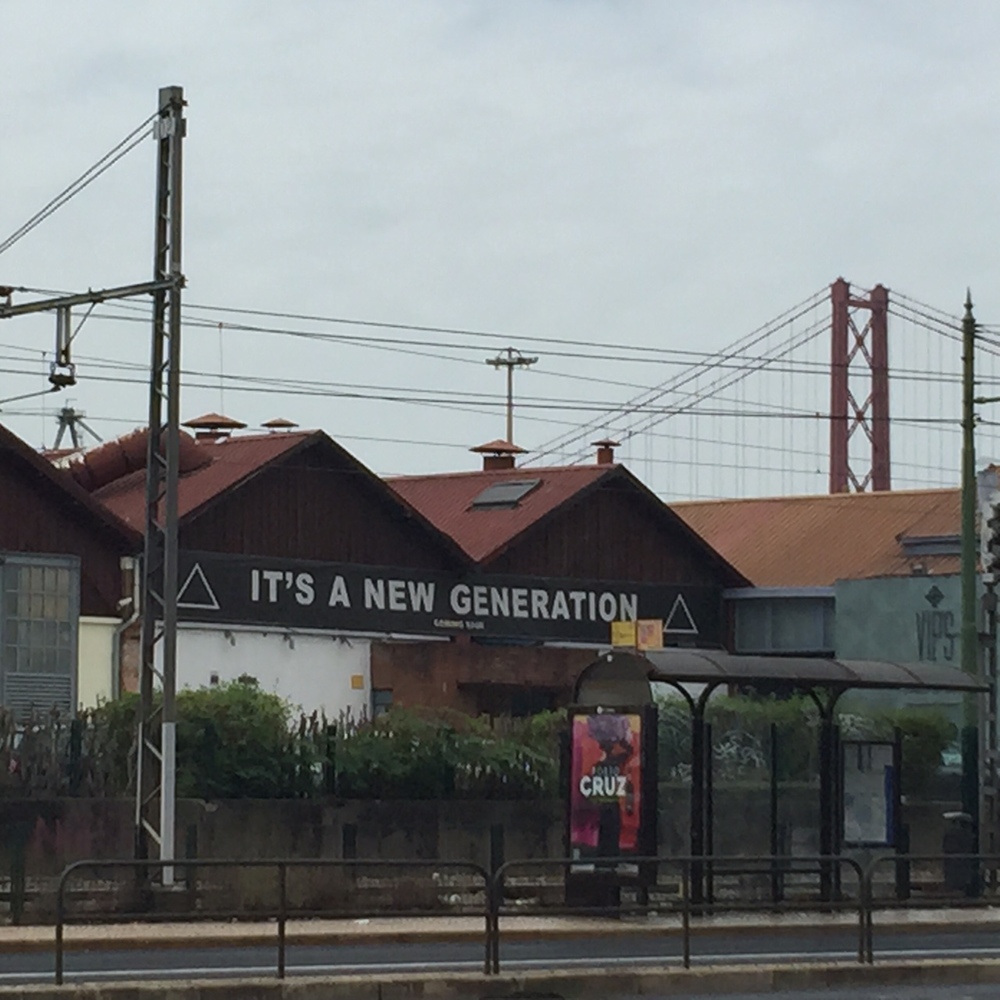
Hi and bye from the airport en route to Lisbon. Here’s my latest artist email newsletter update. Thanks again to everyone who made my first artist residency a success!
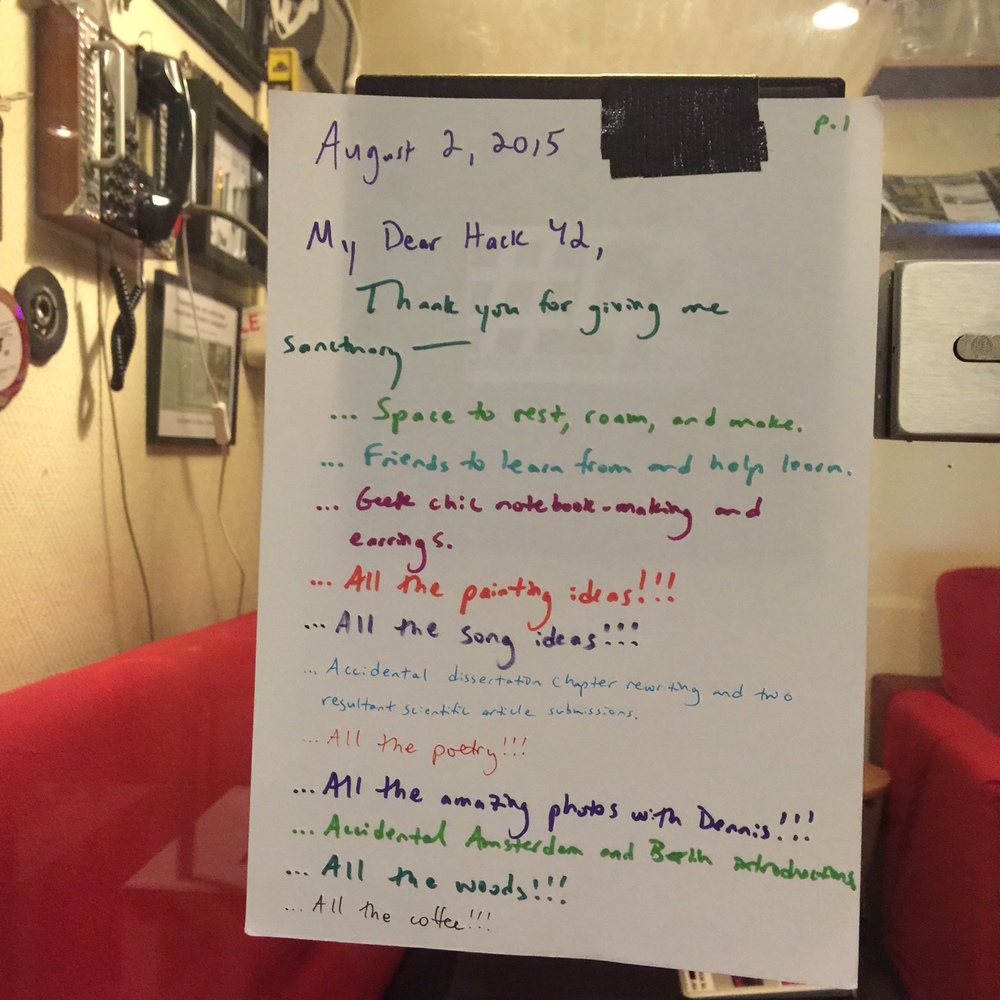
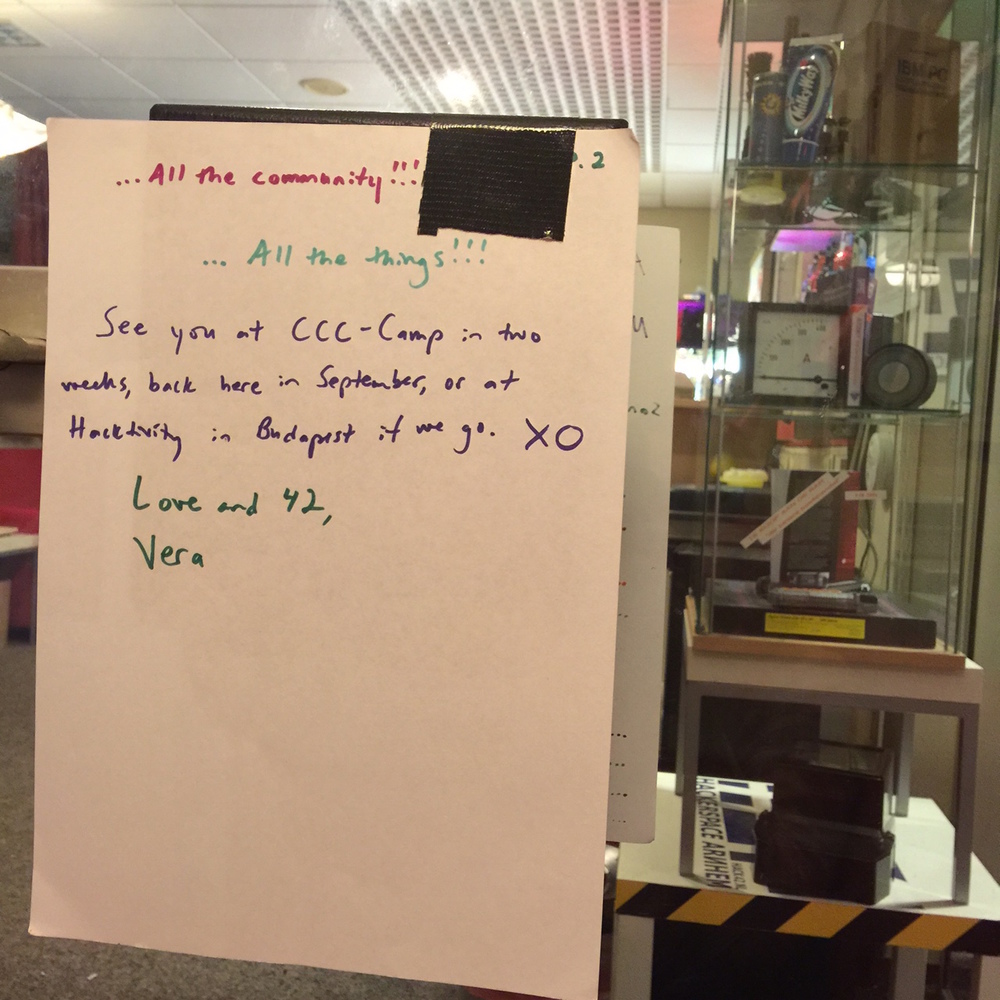
My Dear Hack 42,
Thank you for giving me sanctuary—
… Space to rest, roam, and make.
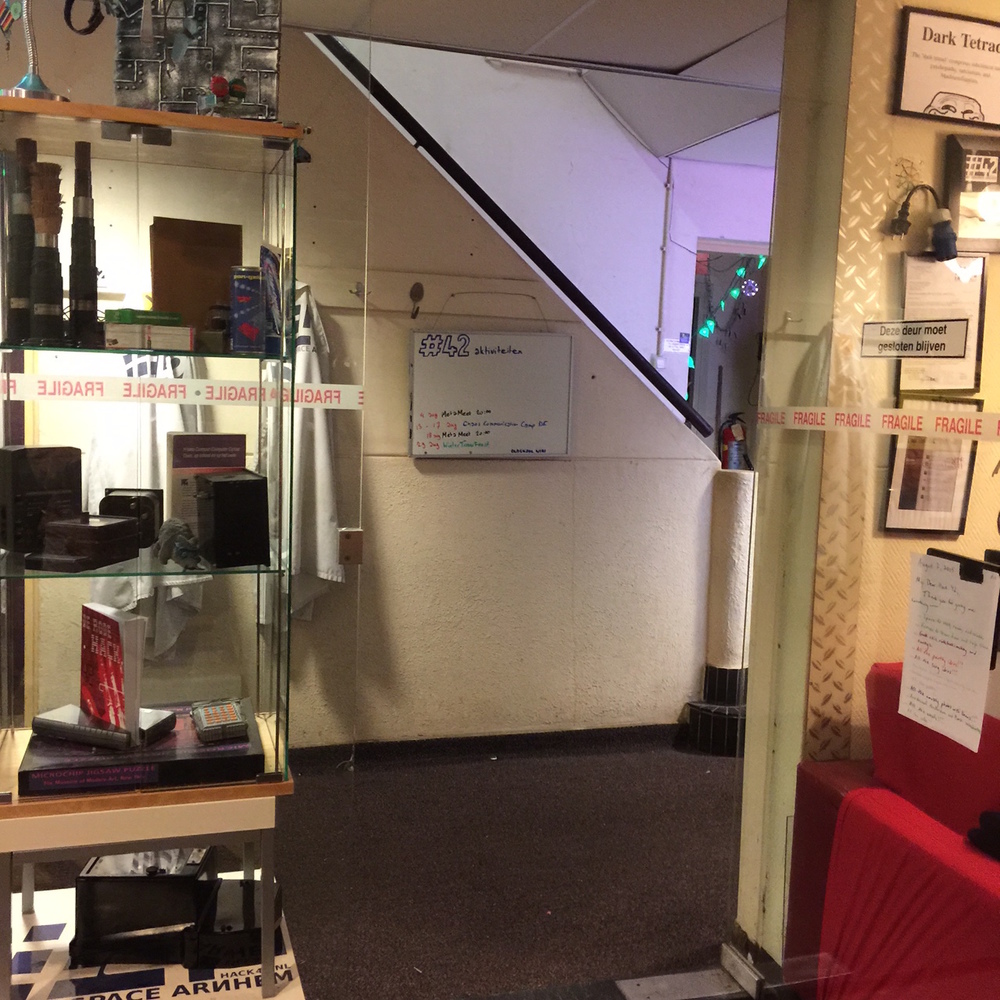
… Friends to learn from and help learn.
… Amazing conversation and ideas about the “Dark-Web,” surveillance, and Internet freedom.
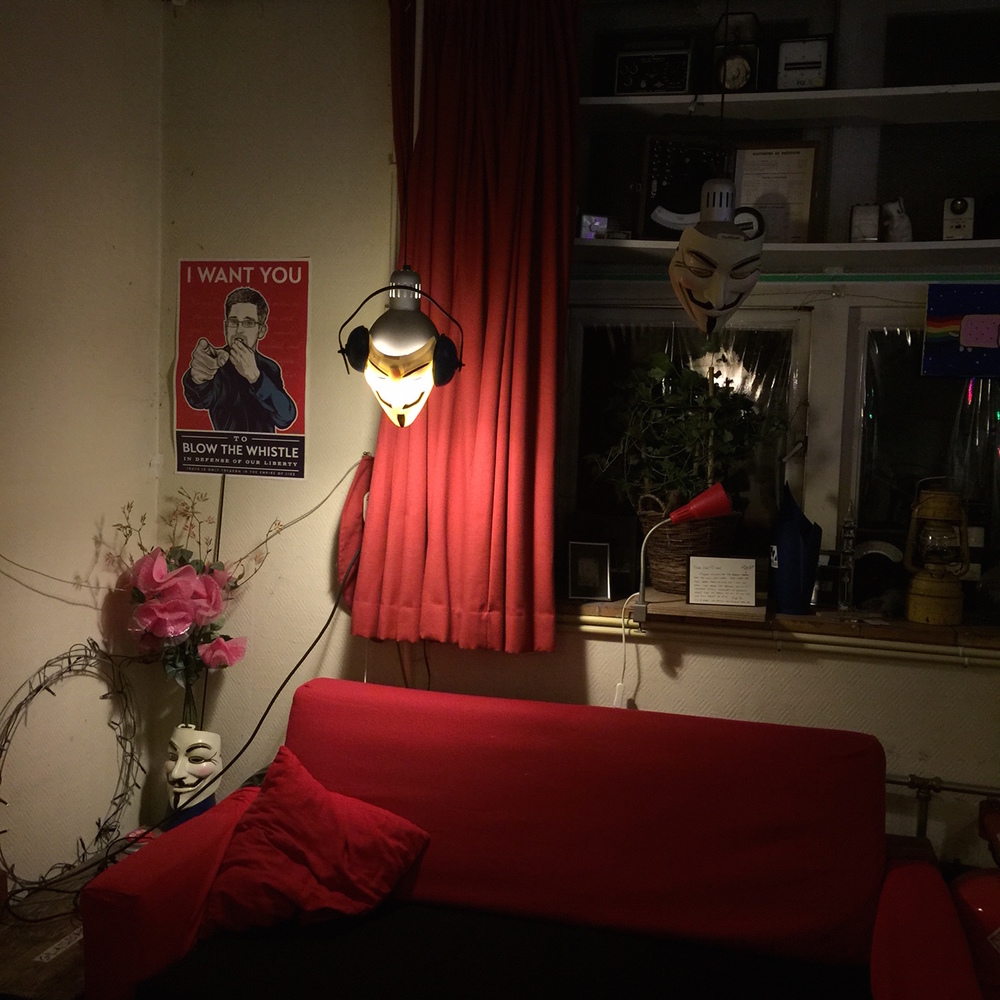
… Geek chic notebook-making and earrings.
… All the painting ideas!!!
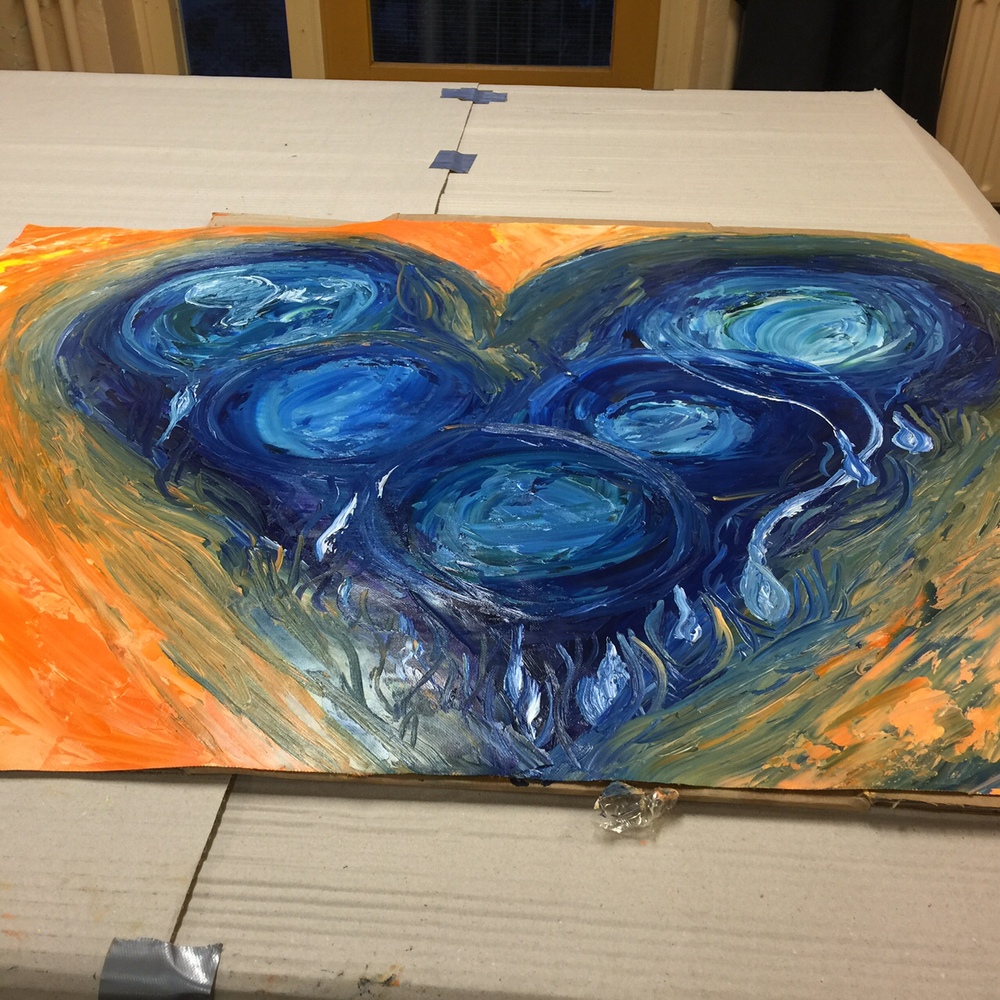
… All the song ideas!!!
… Accidental dissertation chapter rewriting and two resultant scientific article submissions.
… All the poetry!!!
… All the amazing photos with Dennis!!!
… Accidental Amsterdam and Berlin introductions.
… All the woods!
… All the coffee!!!
… All the community!!!
… All the thingz!!!
See you at CCC-Camp in two weeks, back here in September or at Hacktivity in Budapest if we go, XO
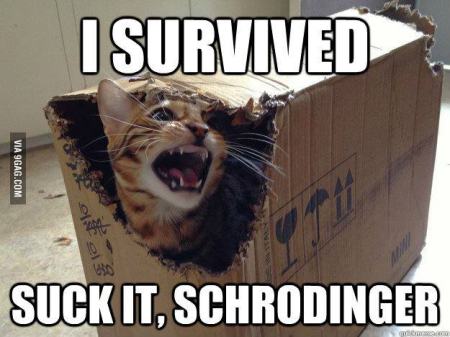
Love and 42,
Vera
Information security is everywhere. It’s in the music we listen to on the radio, on and offline. In the water we drink when we’re not swigging mate soda like the hacktivist hipsters we are. And all over the Interwebs. I think the cats brought it in. This ongoing bloggular series examines its pawprints on the good carpet.
Step 1. Leave computer in hackerspace momentarily to make tea.
Step 2. Come back to find message typed above draft thank-you note to hackerspace for first artist residency:
You should not leave your laptop unlocked…
Step 3. Cackle madly and look around at apparently deserted hackerspace.
Step 4. ????
Step 5. PROFIT!!!!
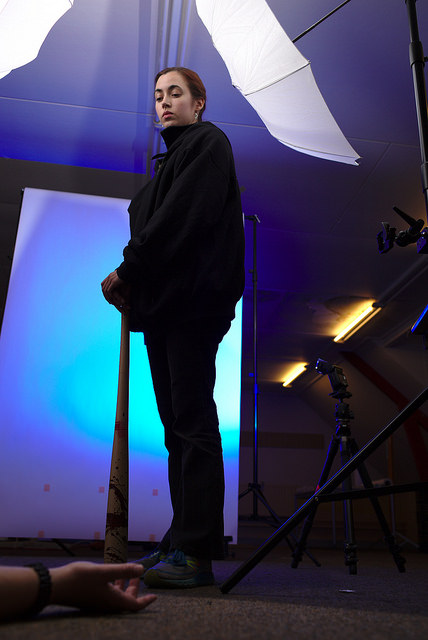
The amazing Dennis van Zuijlekom has added the product of our third photo session from my Hack42 artist residency to his Flickr page.
More soon! Suddenly not enough time for half of what I still wanted to do here before leaving for Lisbon tomorrow…
But I figured out on another long walk in the woods today why I’ve been so confused about my life direction for so long. “Roaming Vera” was not on any of the career lists on any of the standardized career tests I took.
Duh. I want to be a Roaming Vera when I grow up. Now it all makes sense.